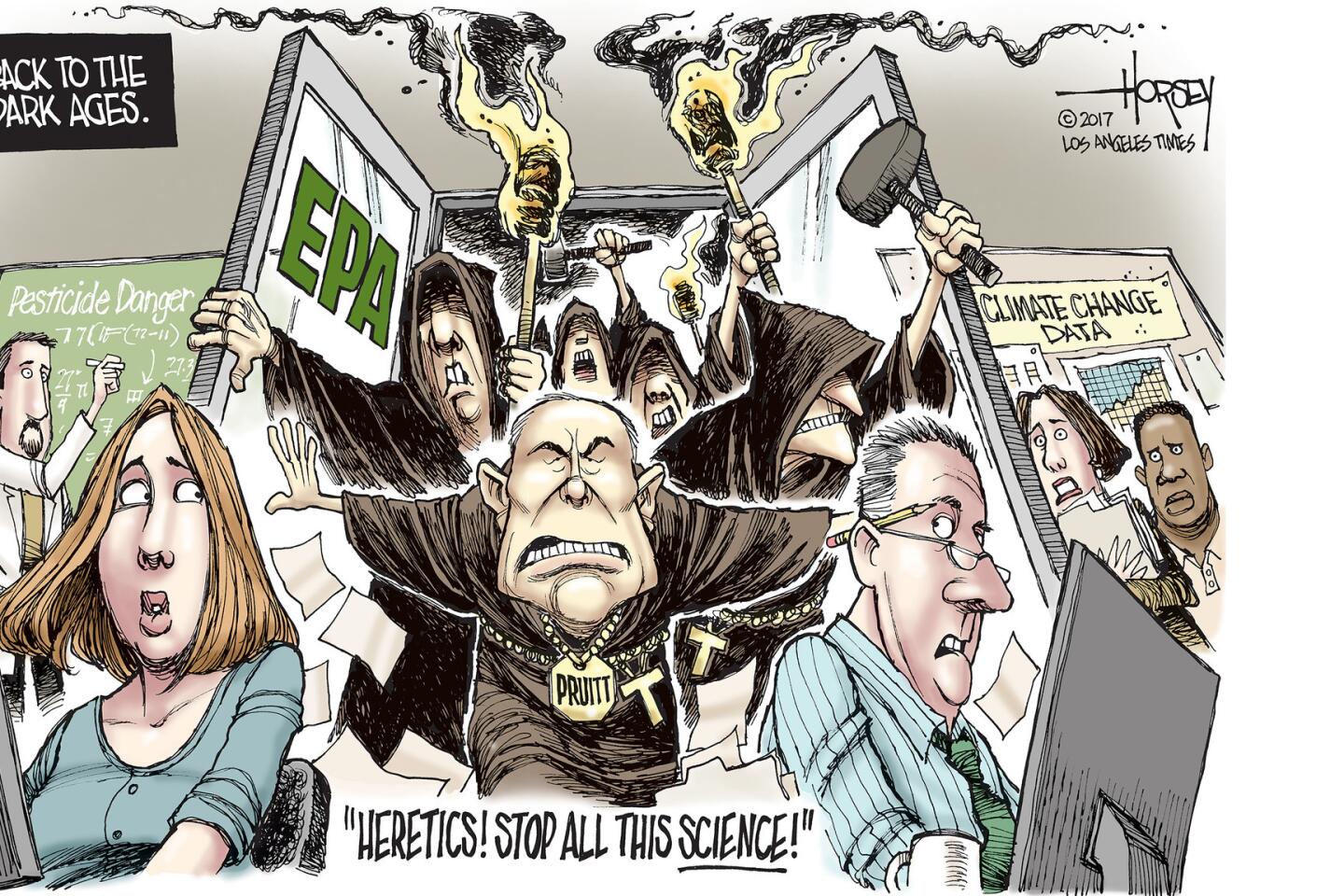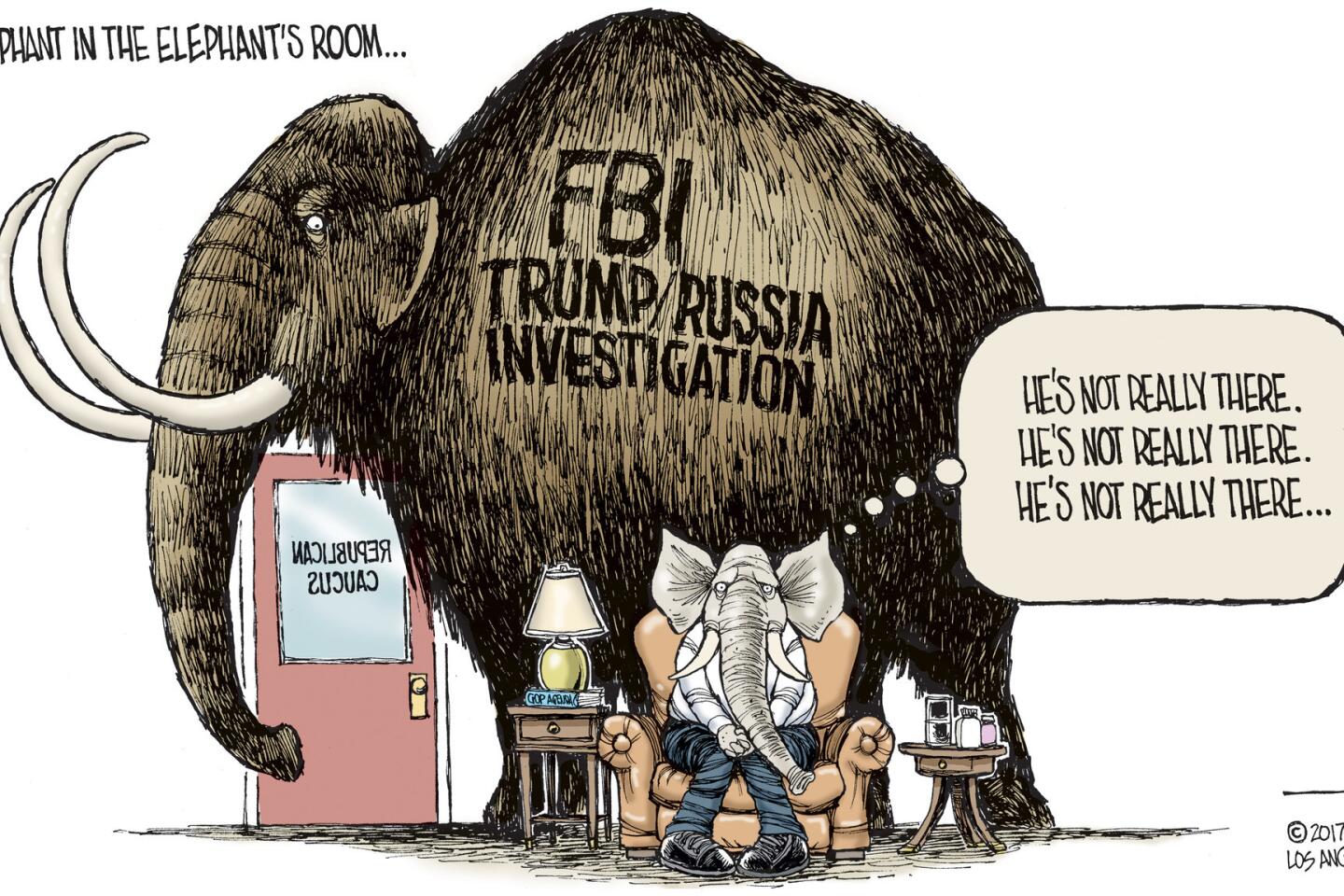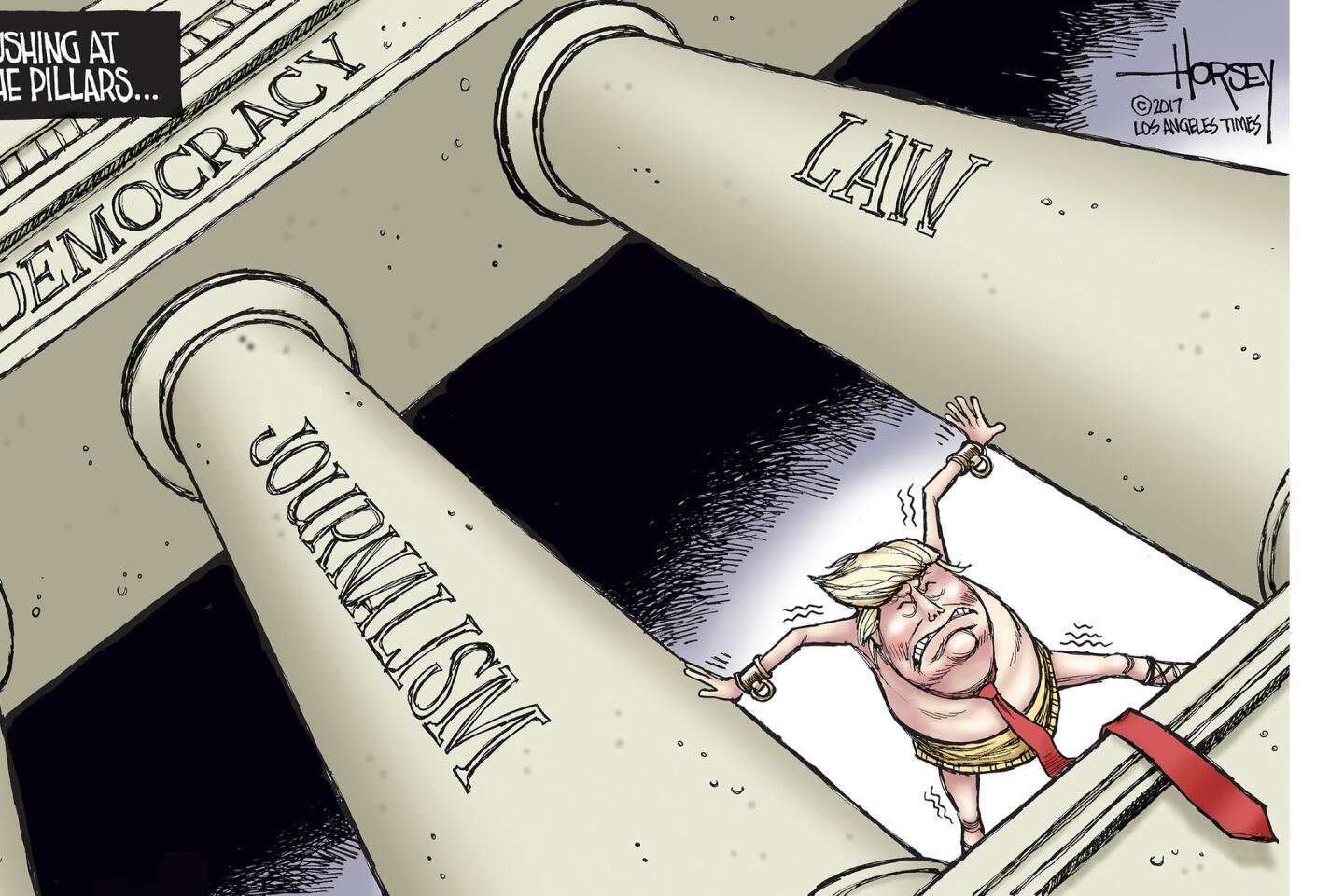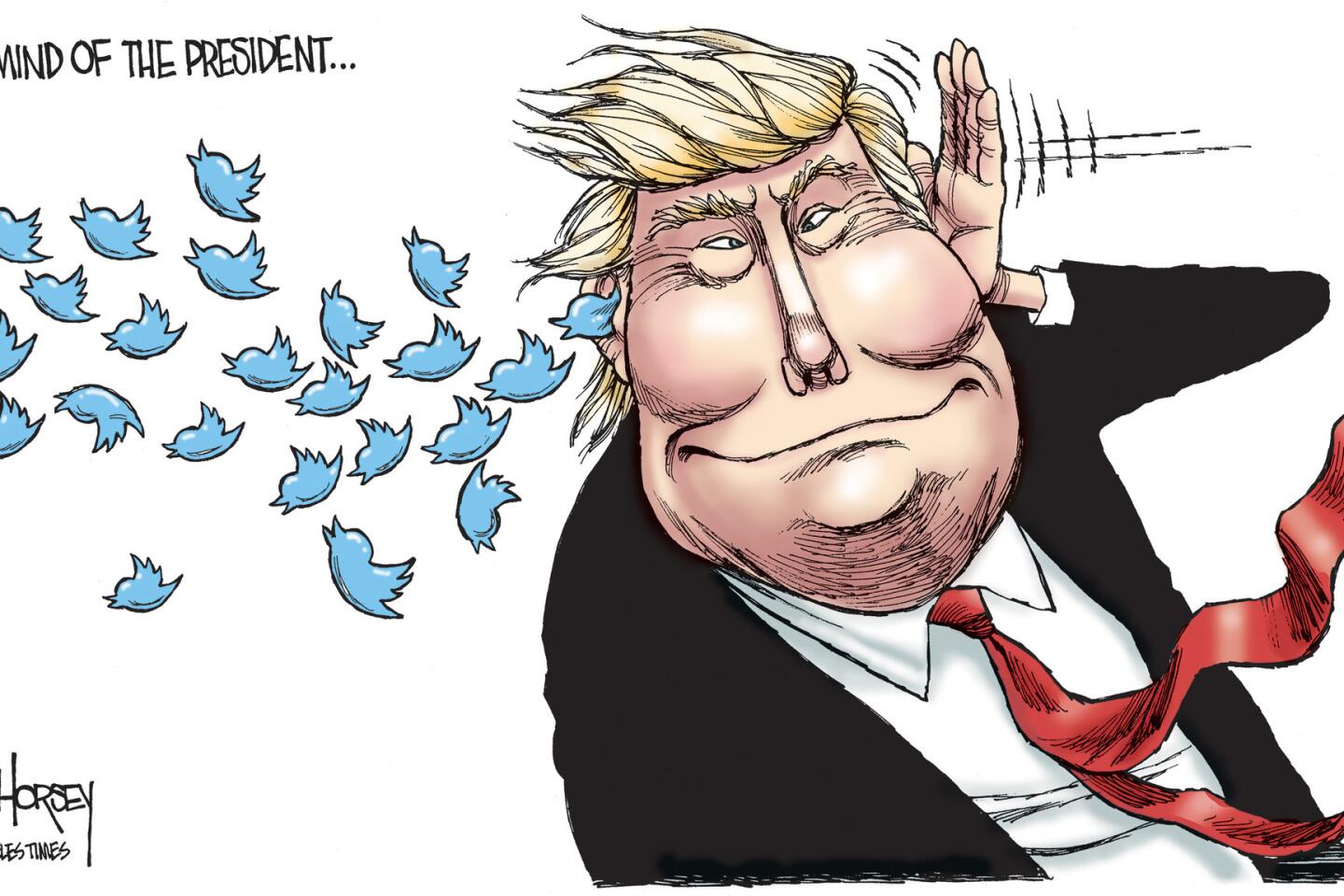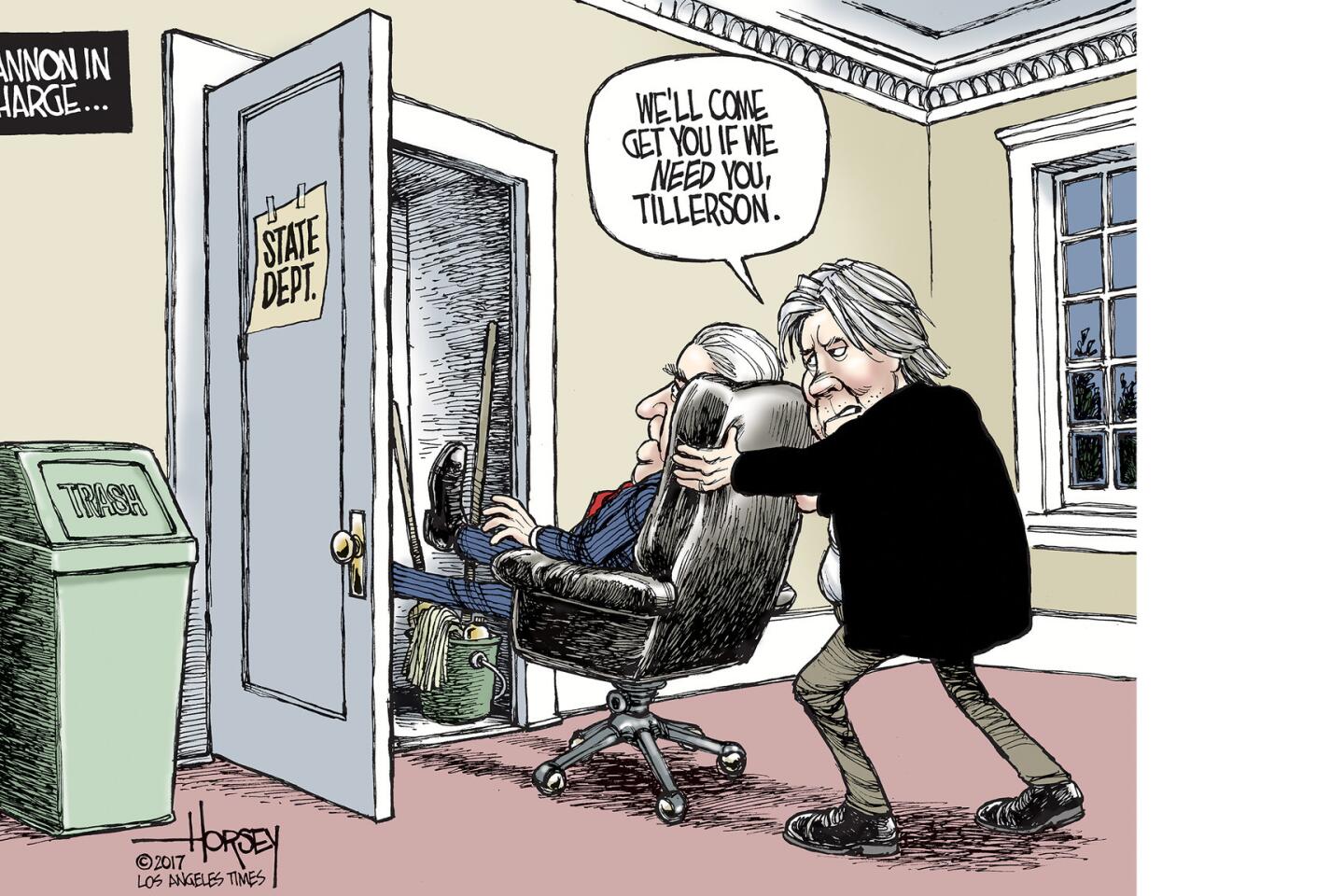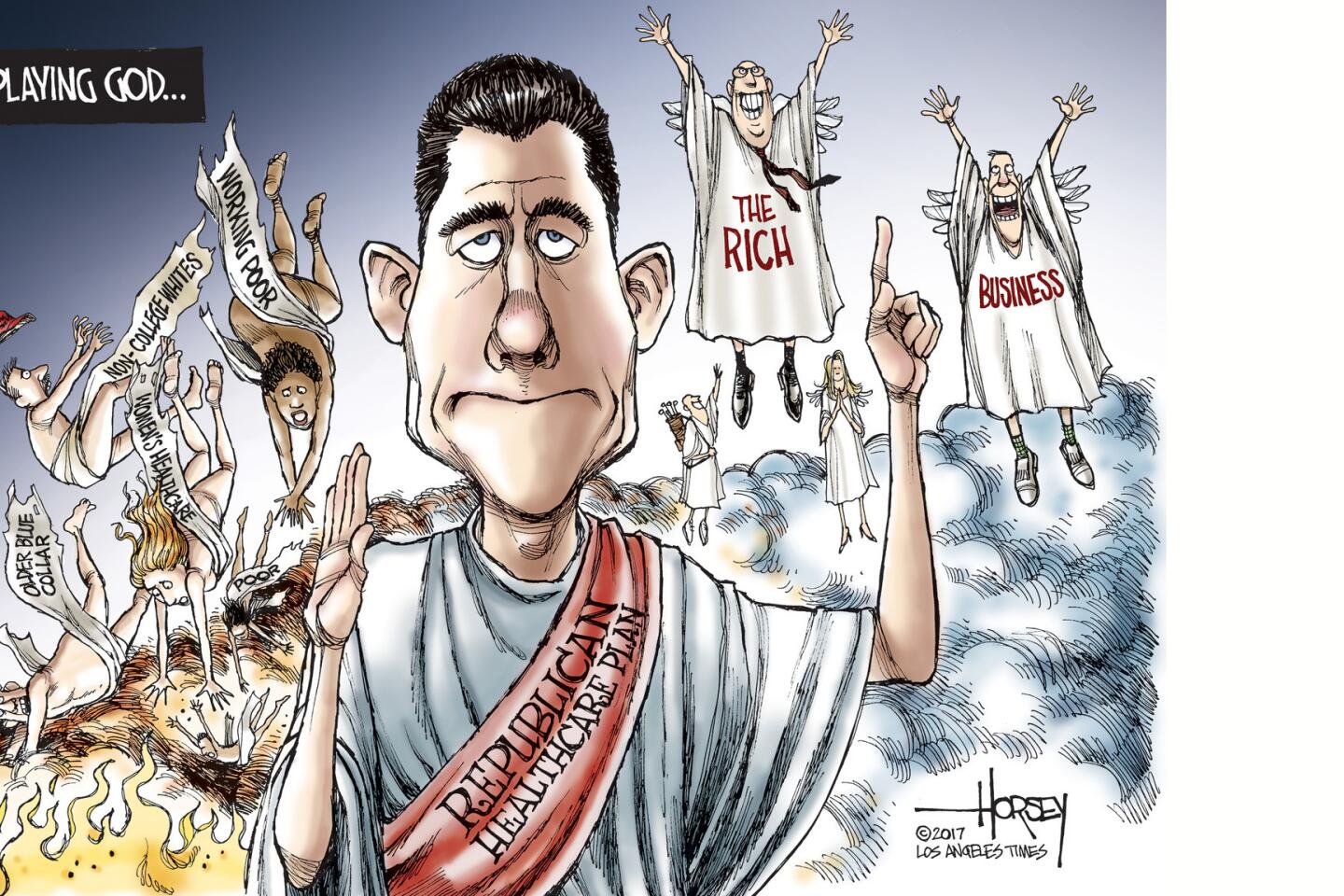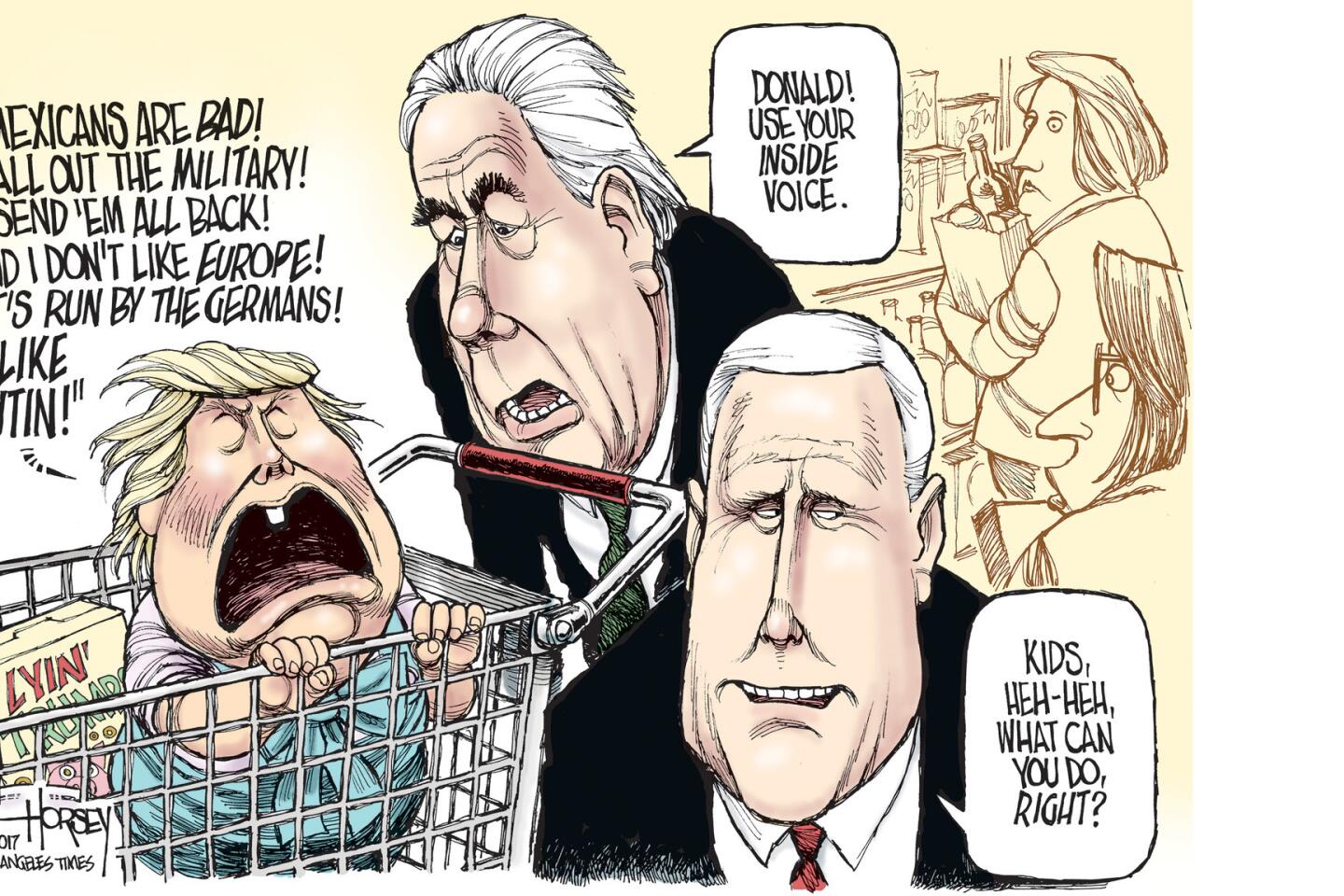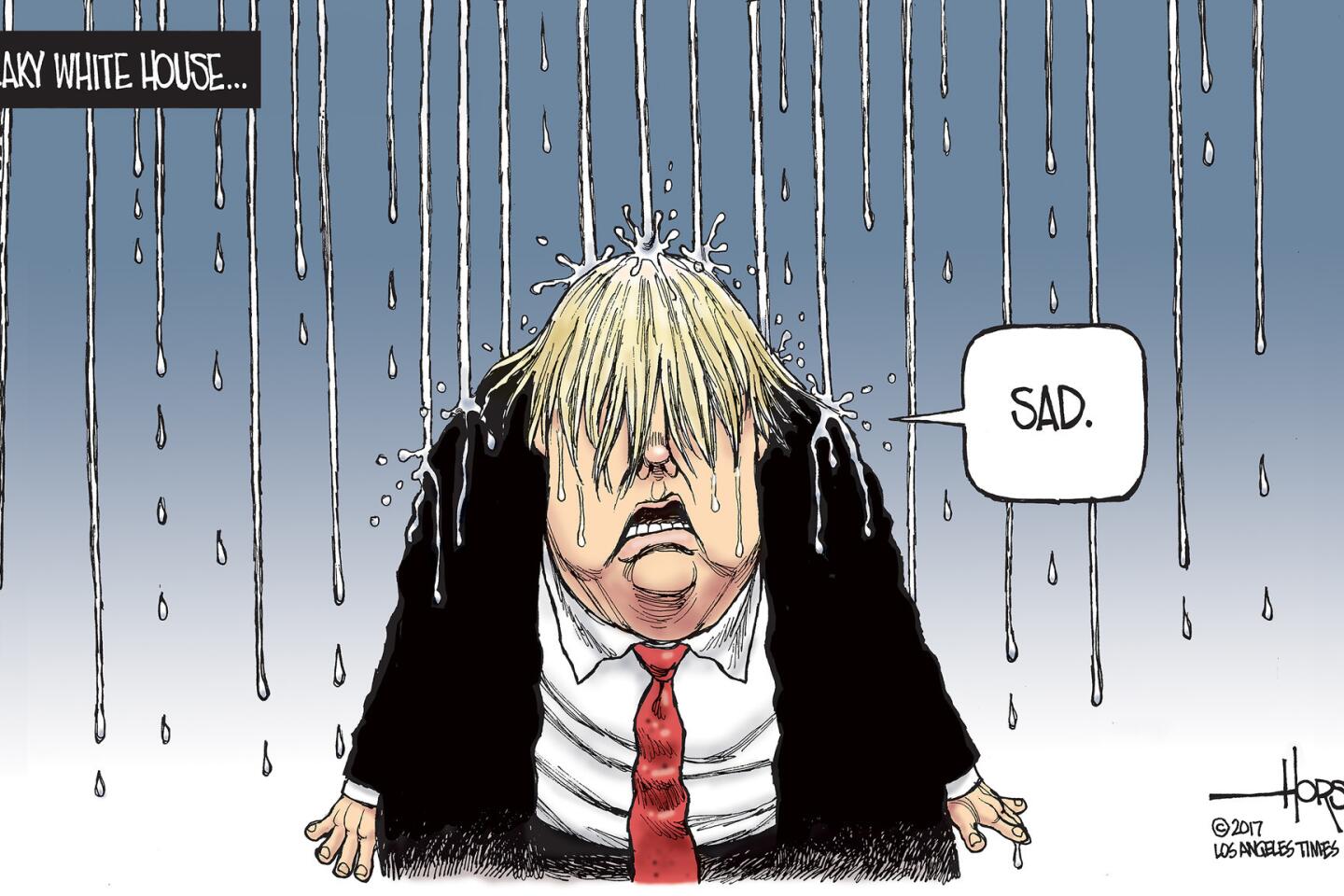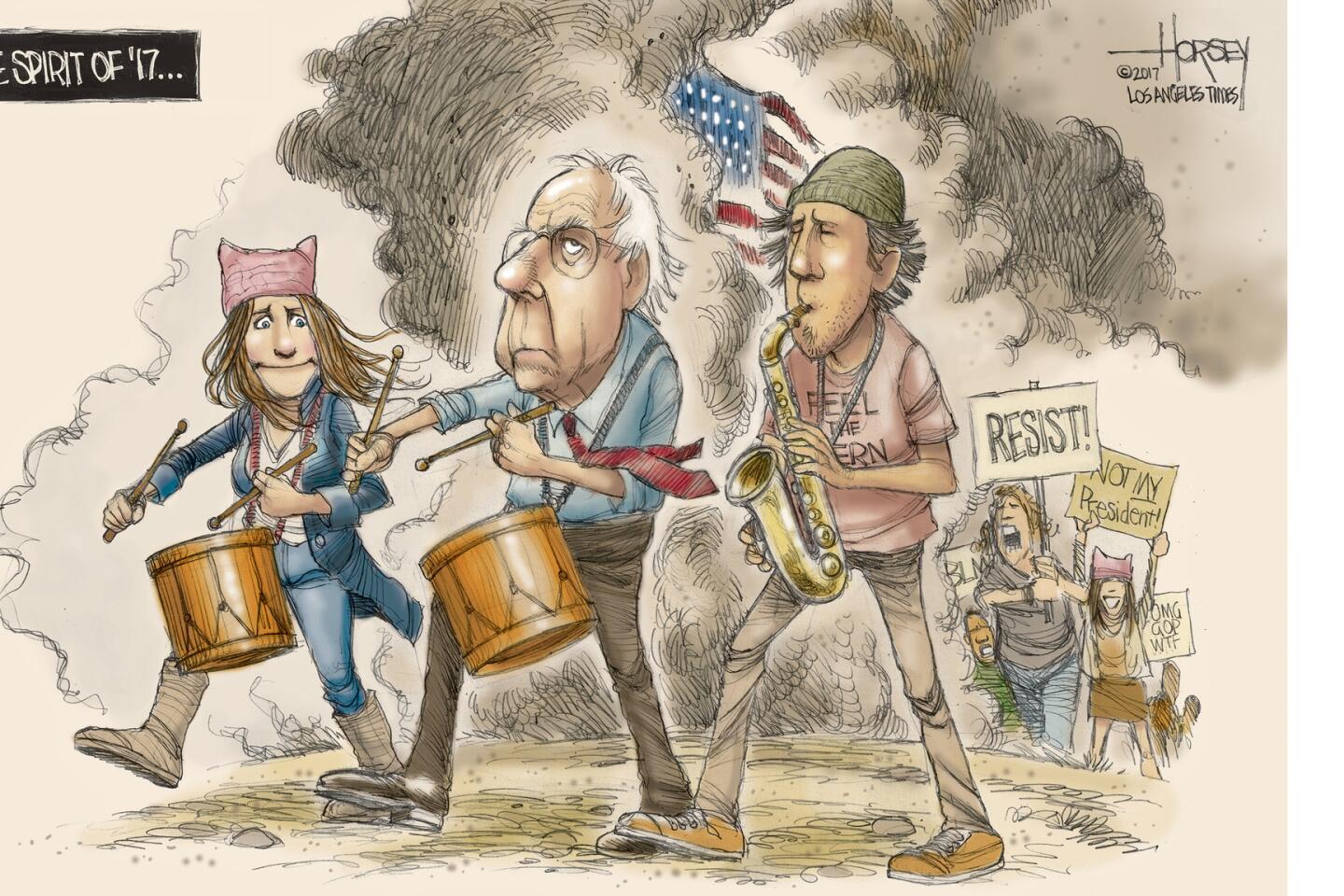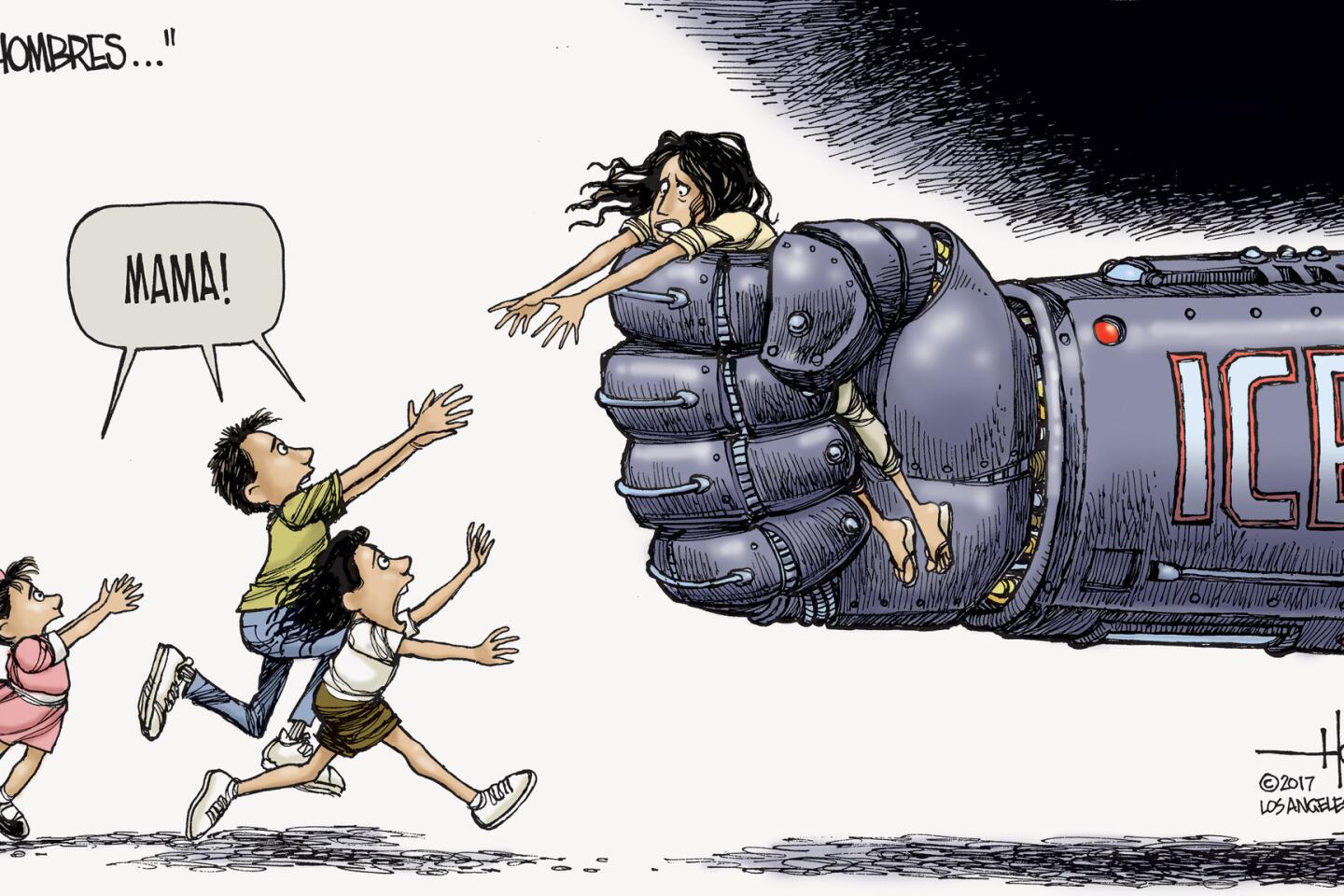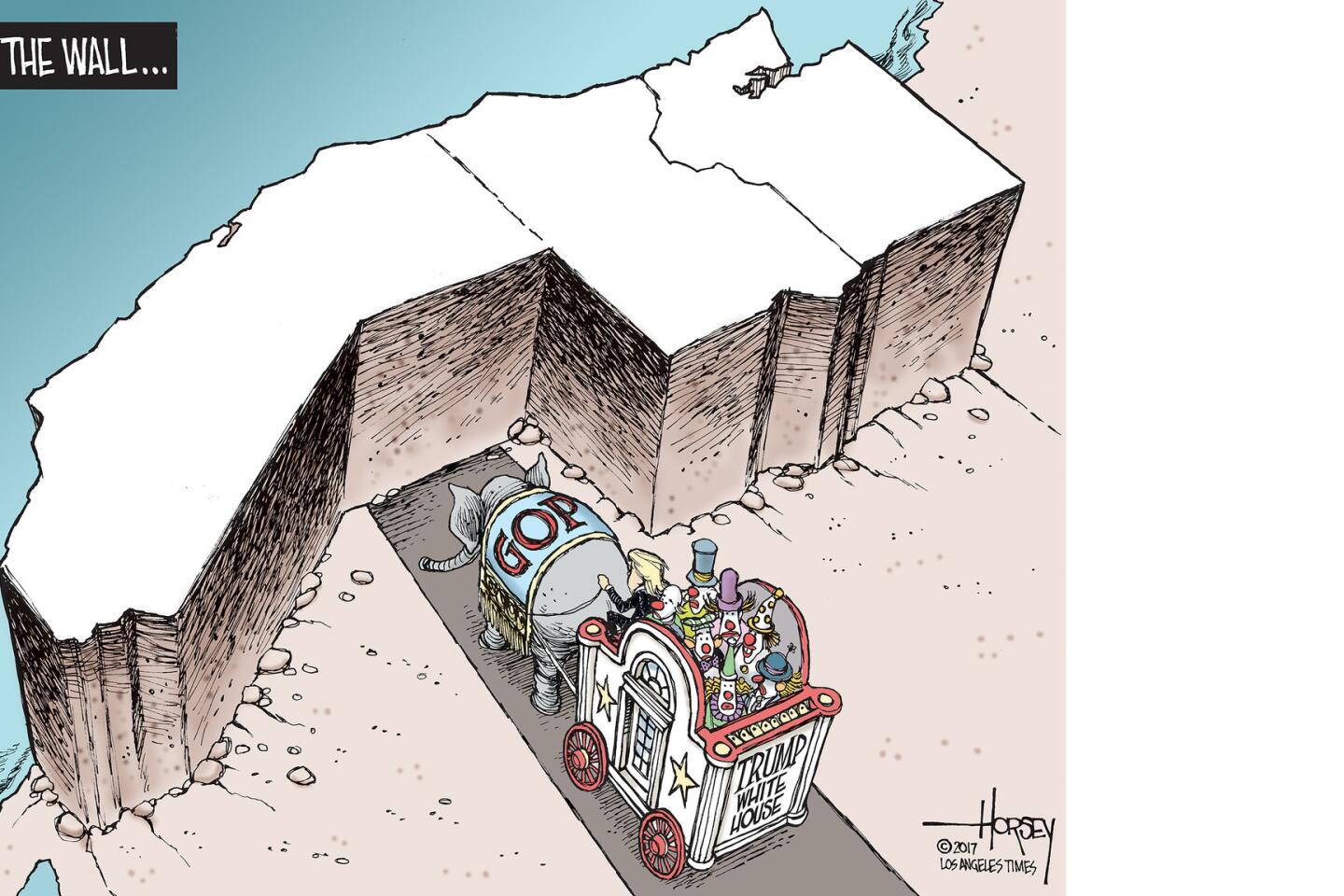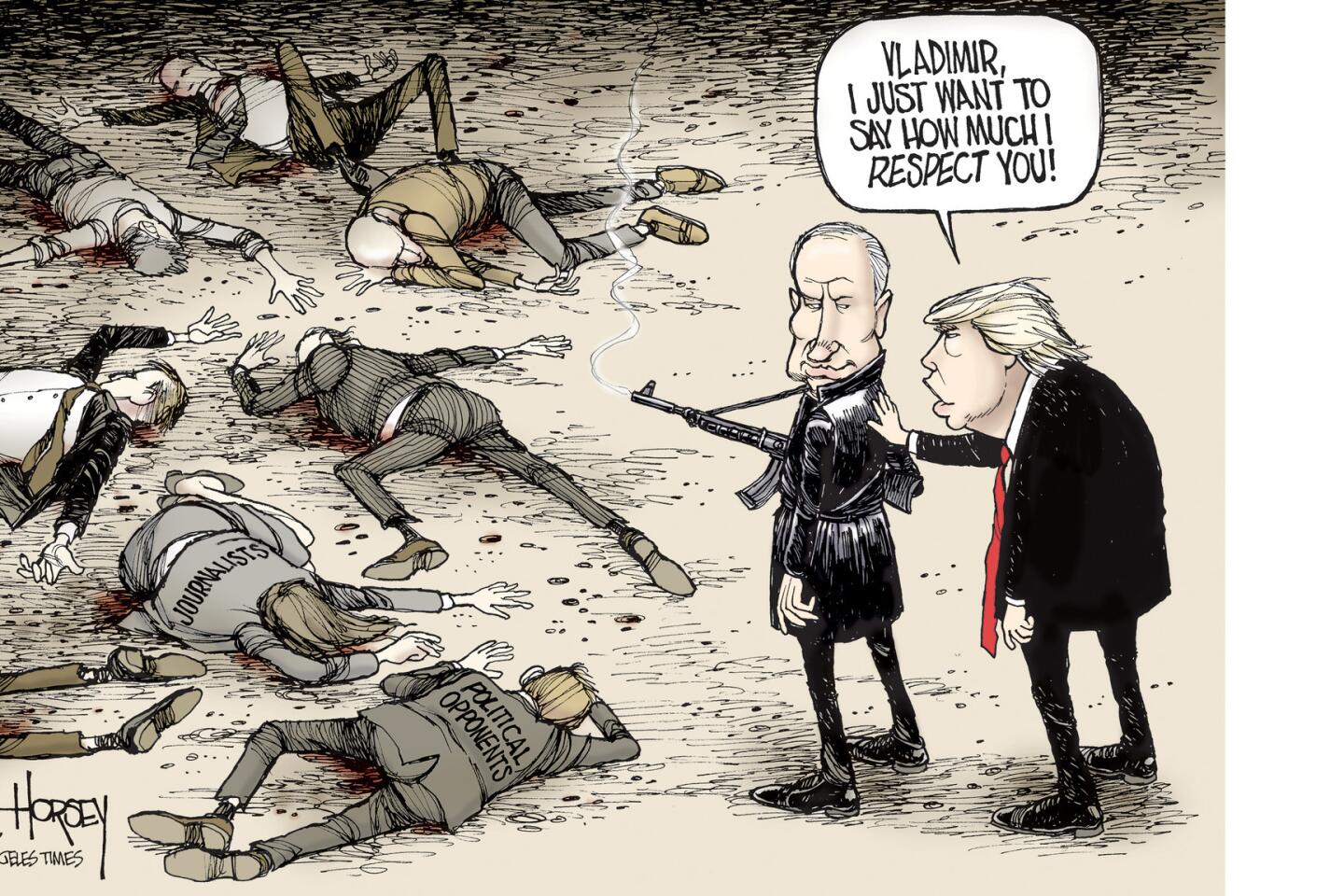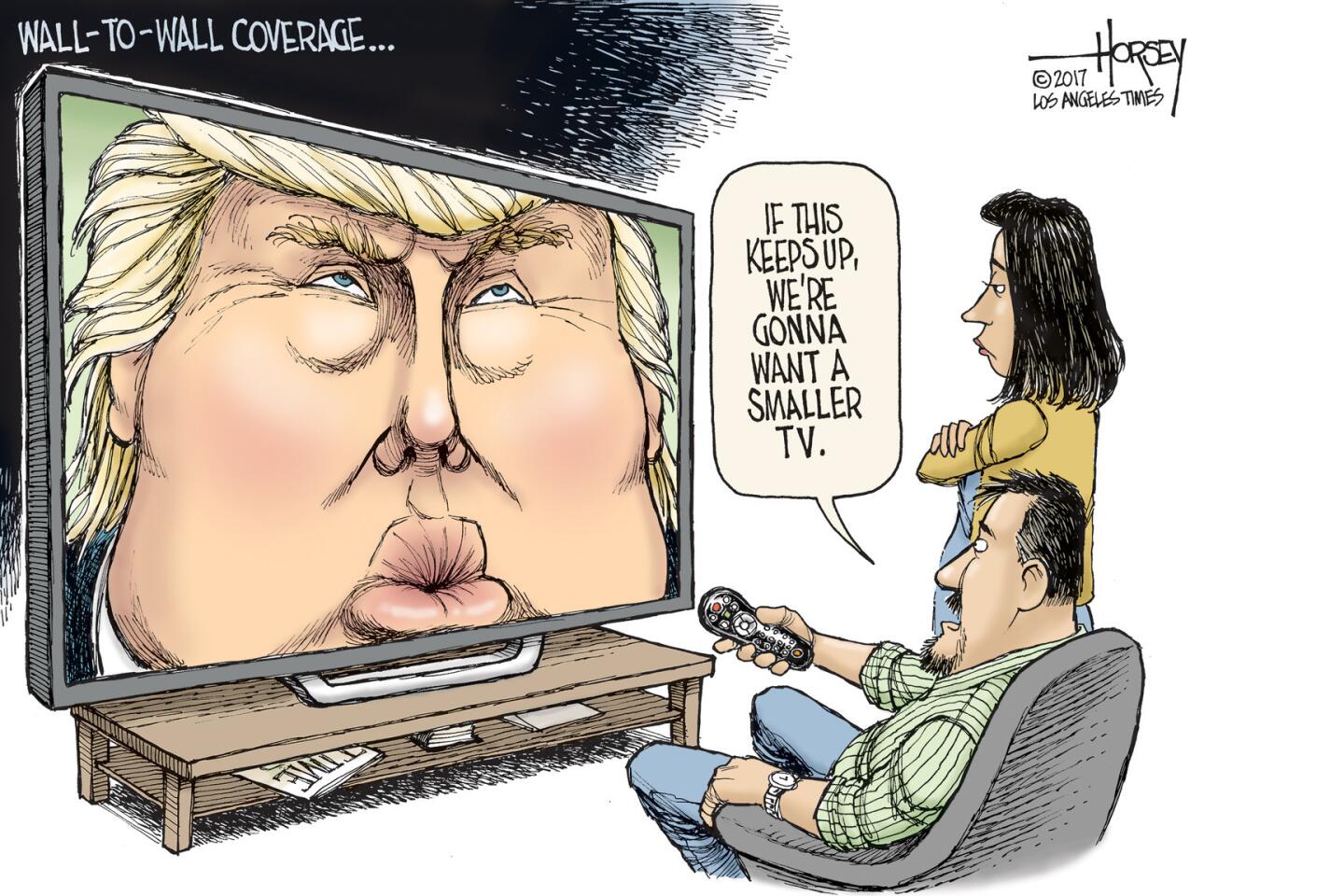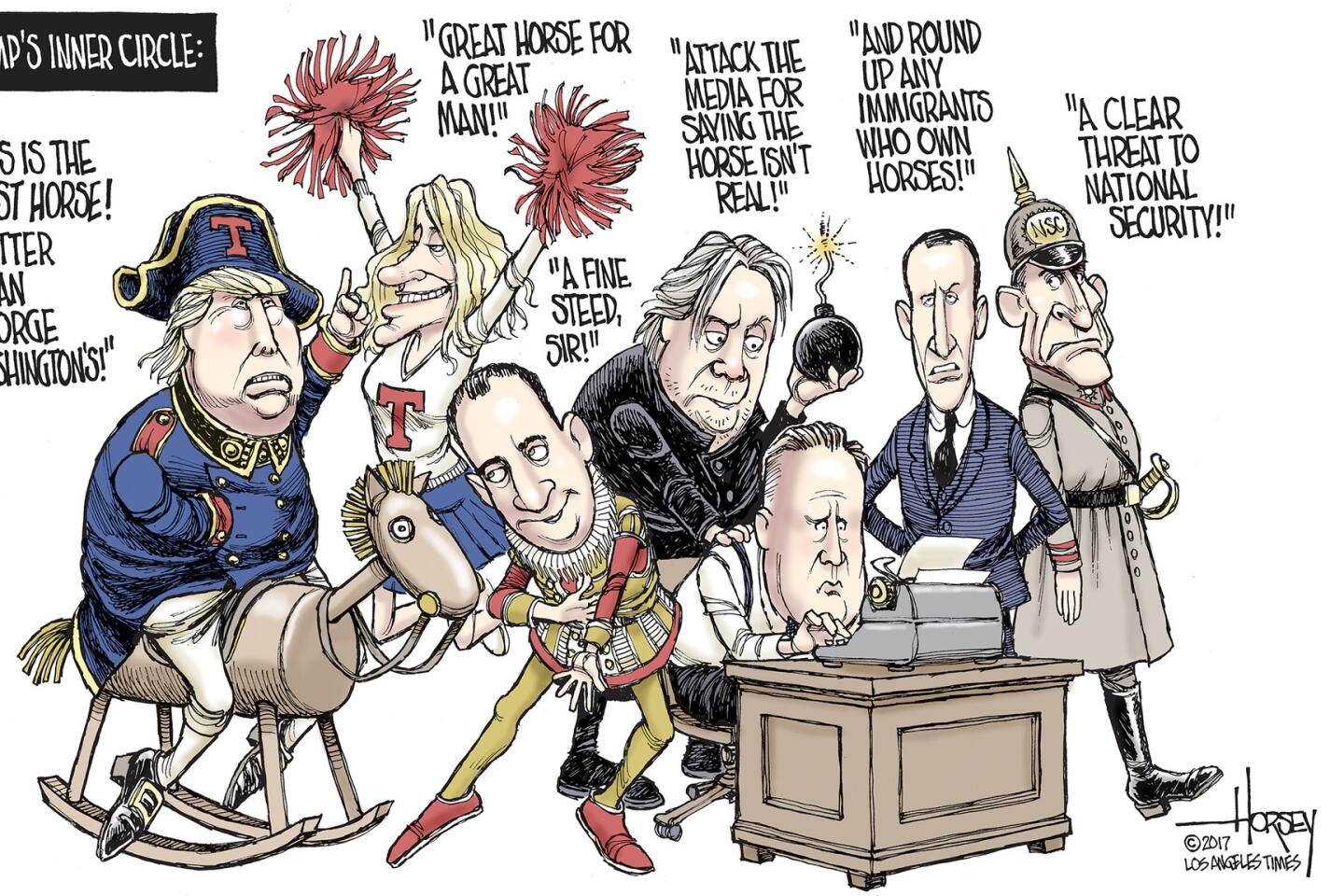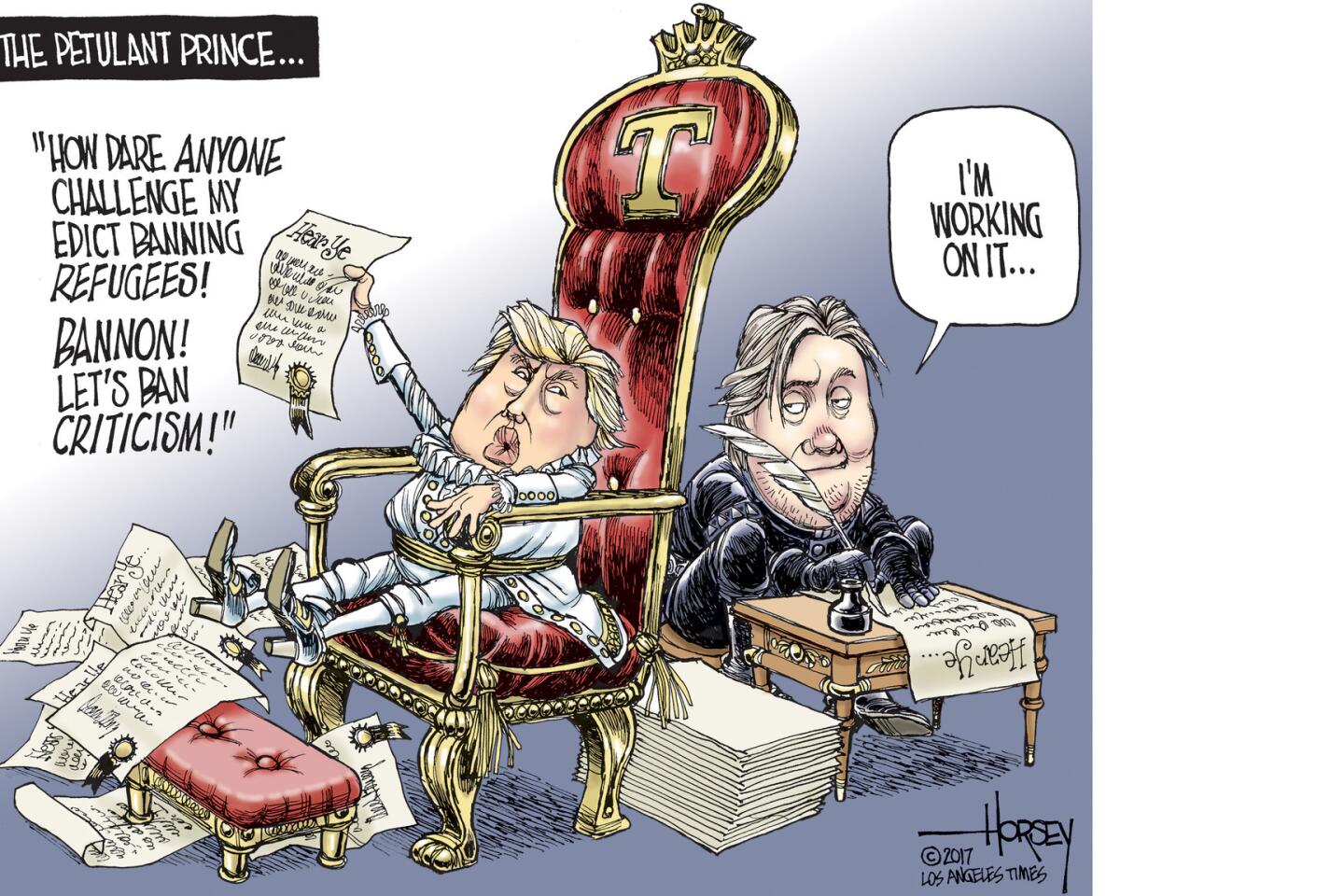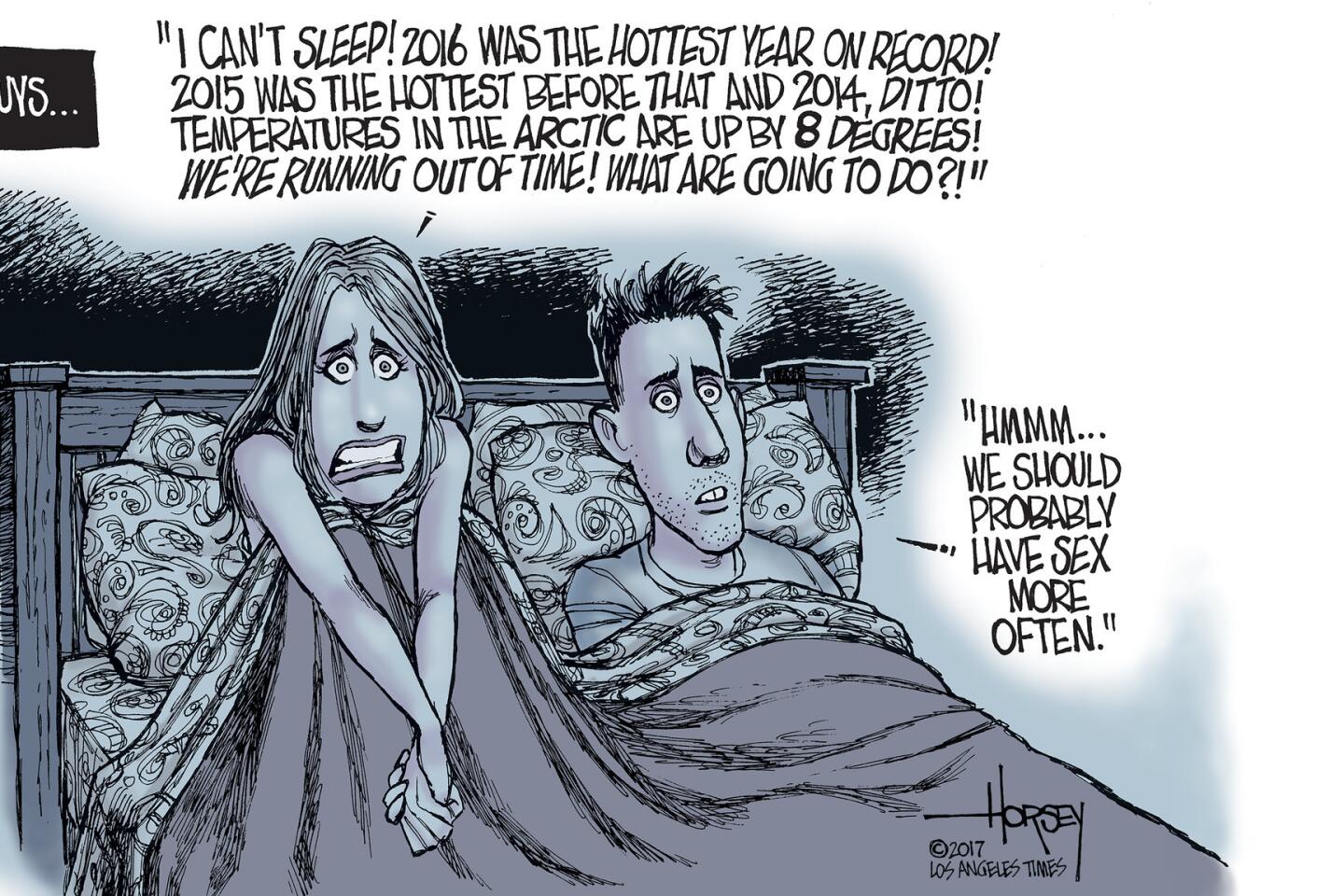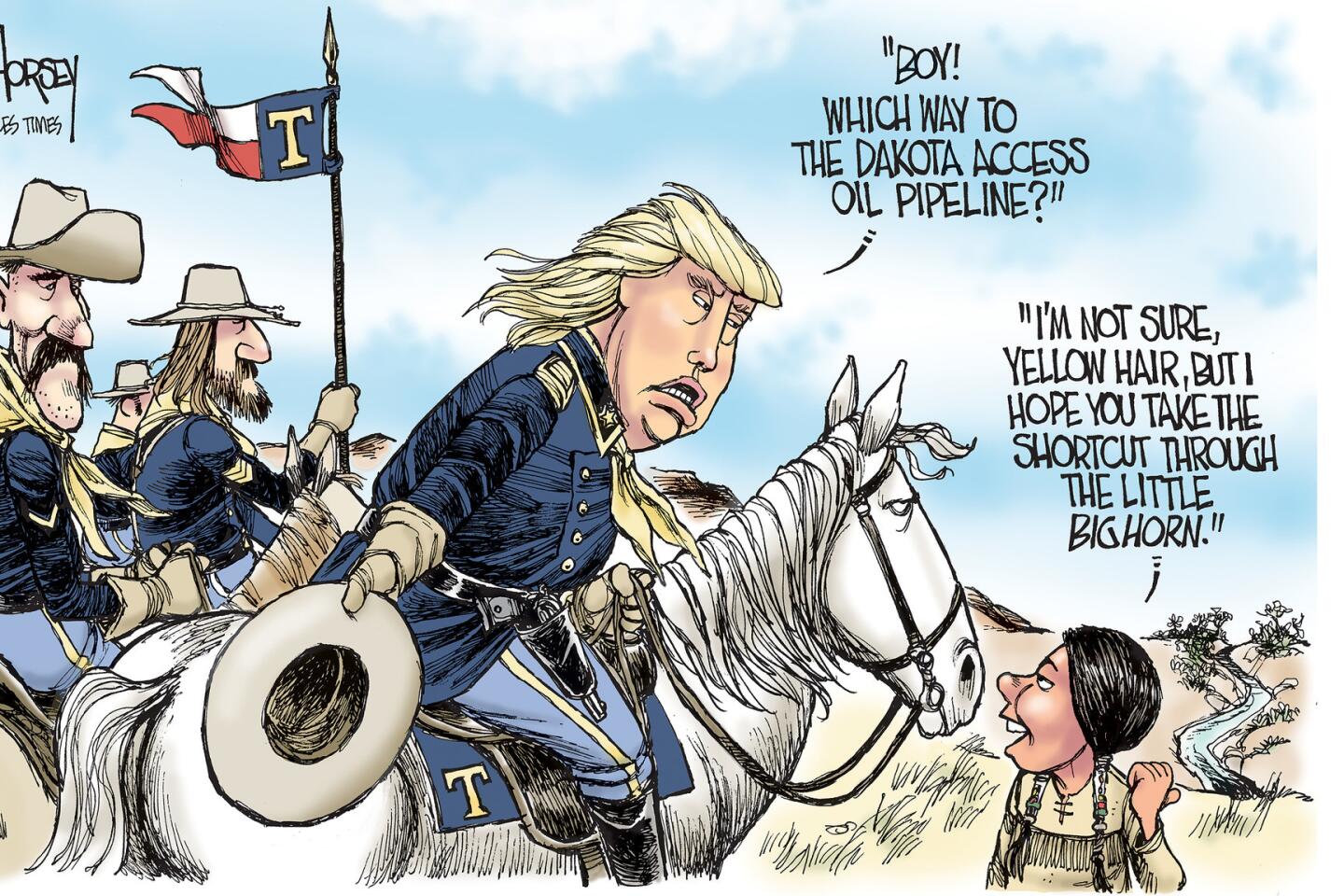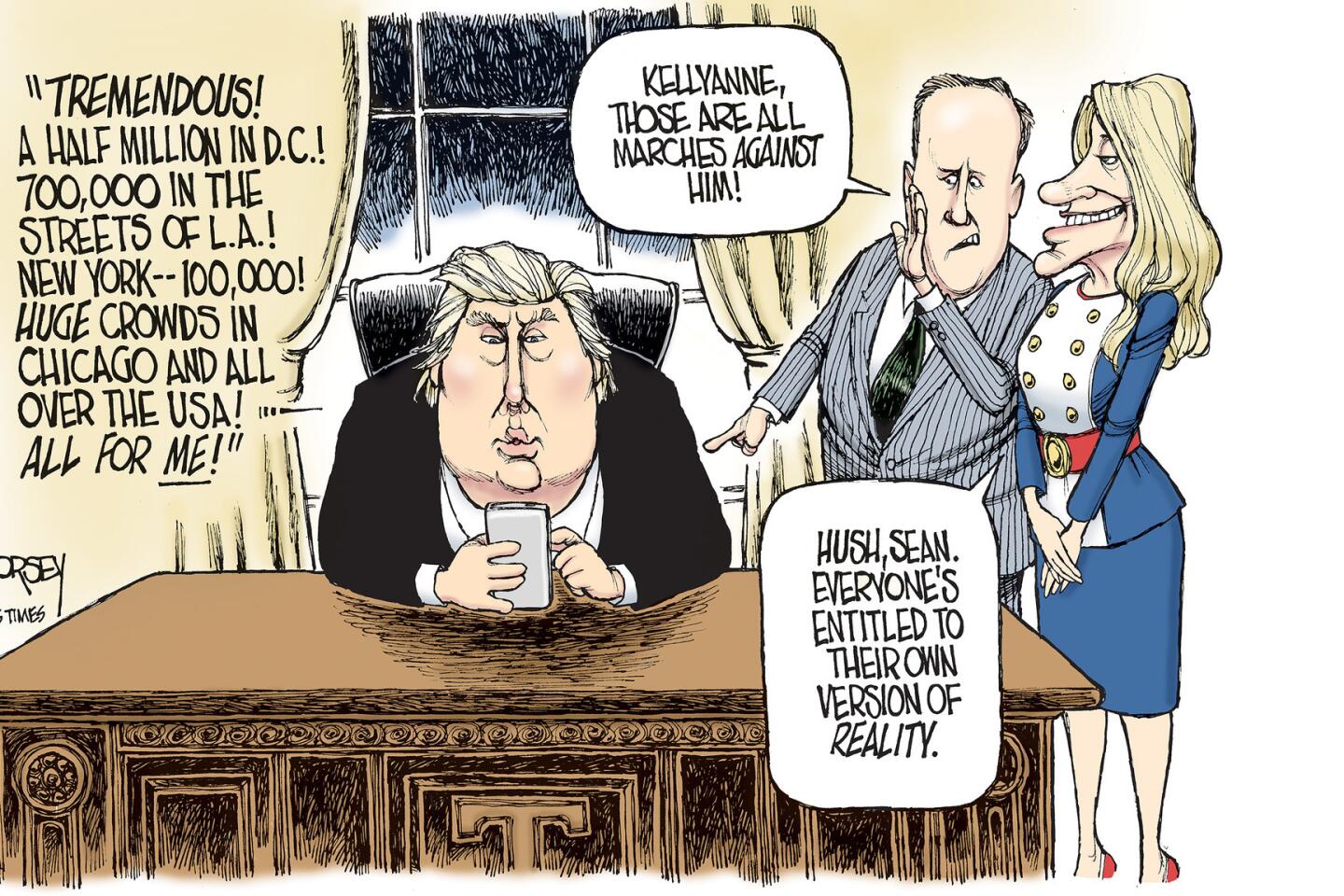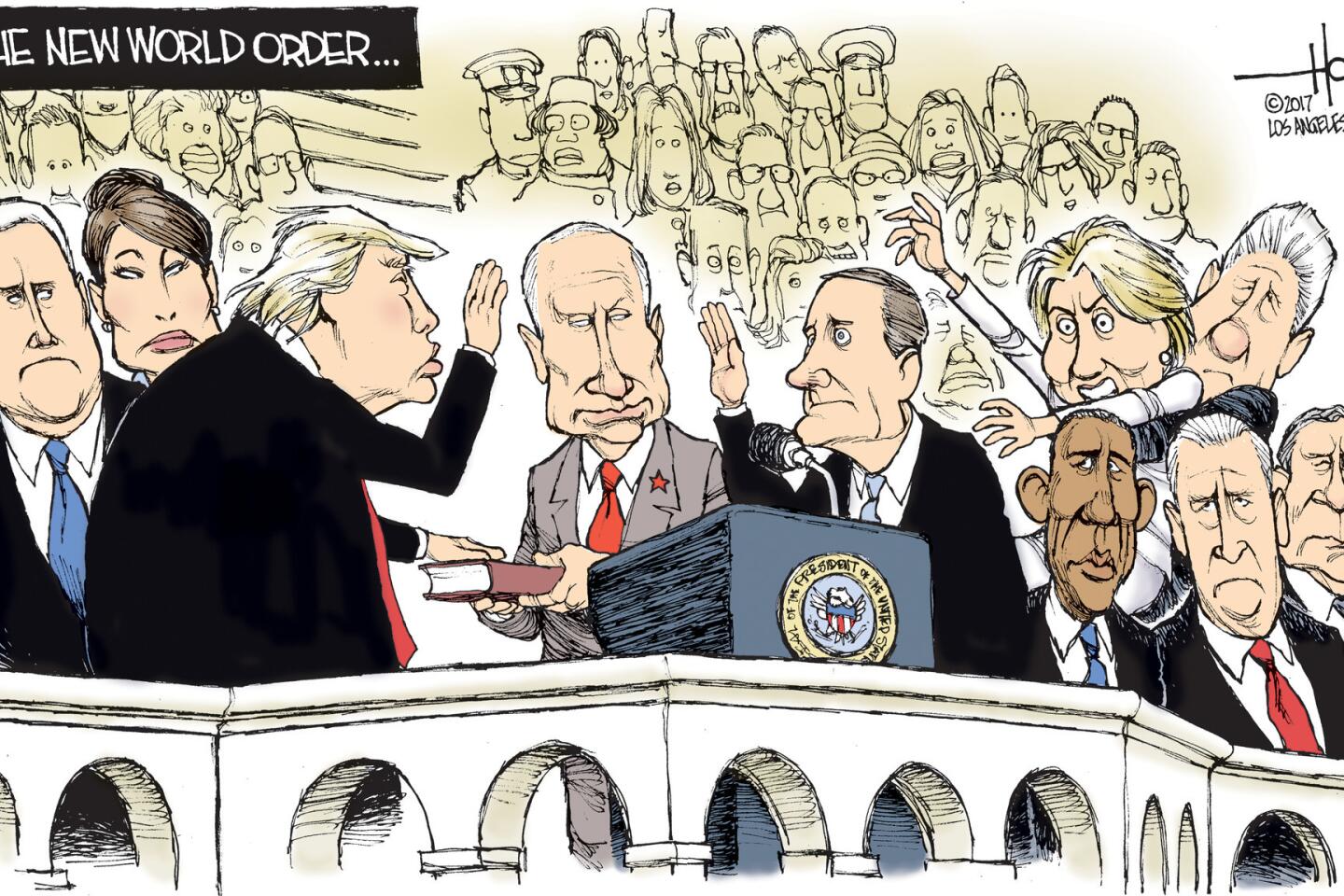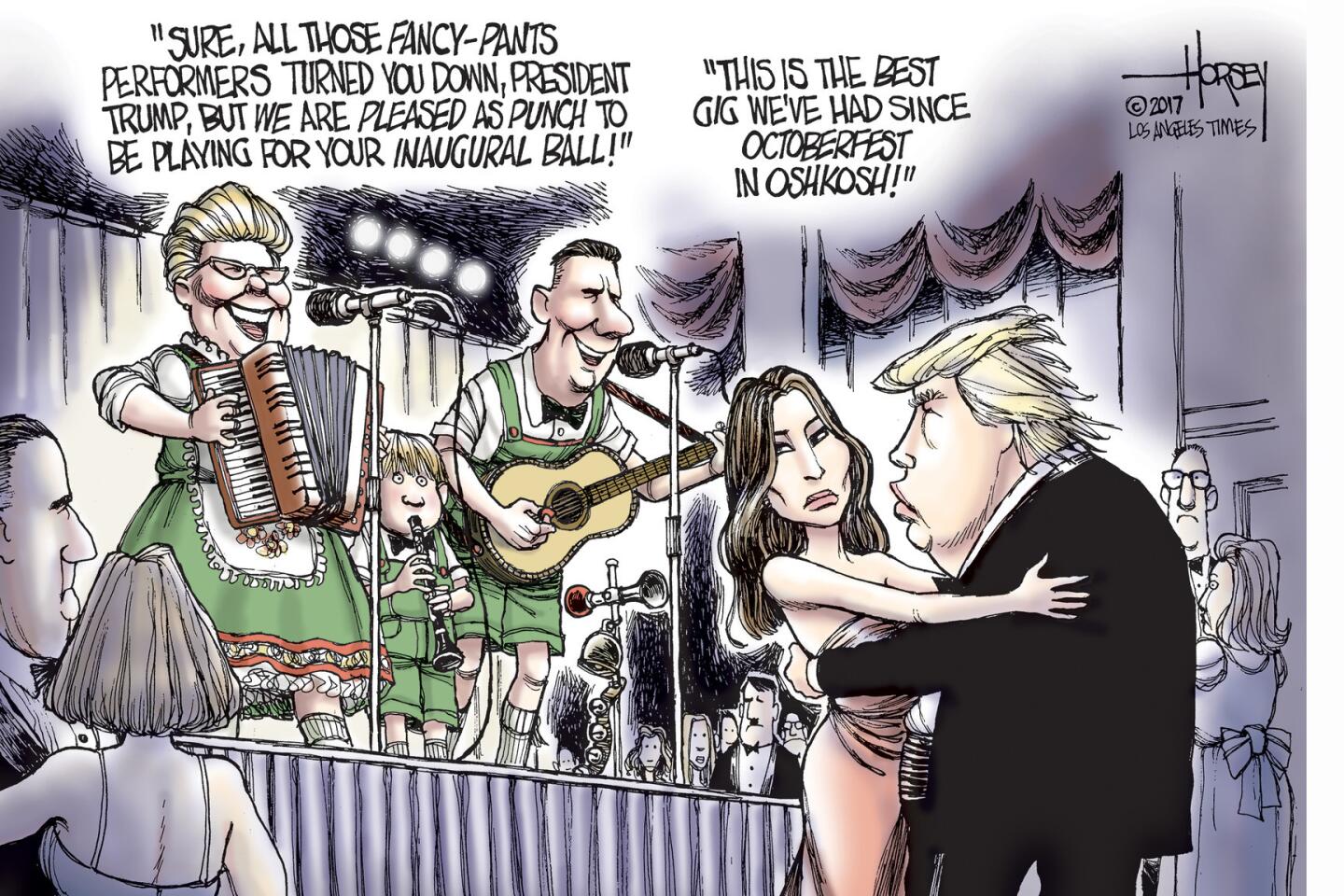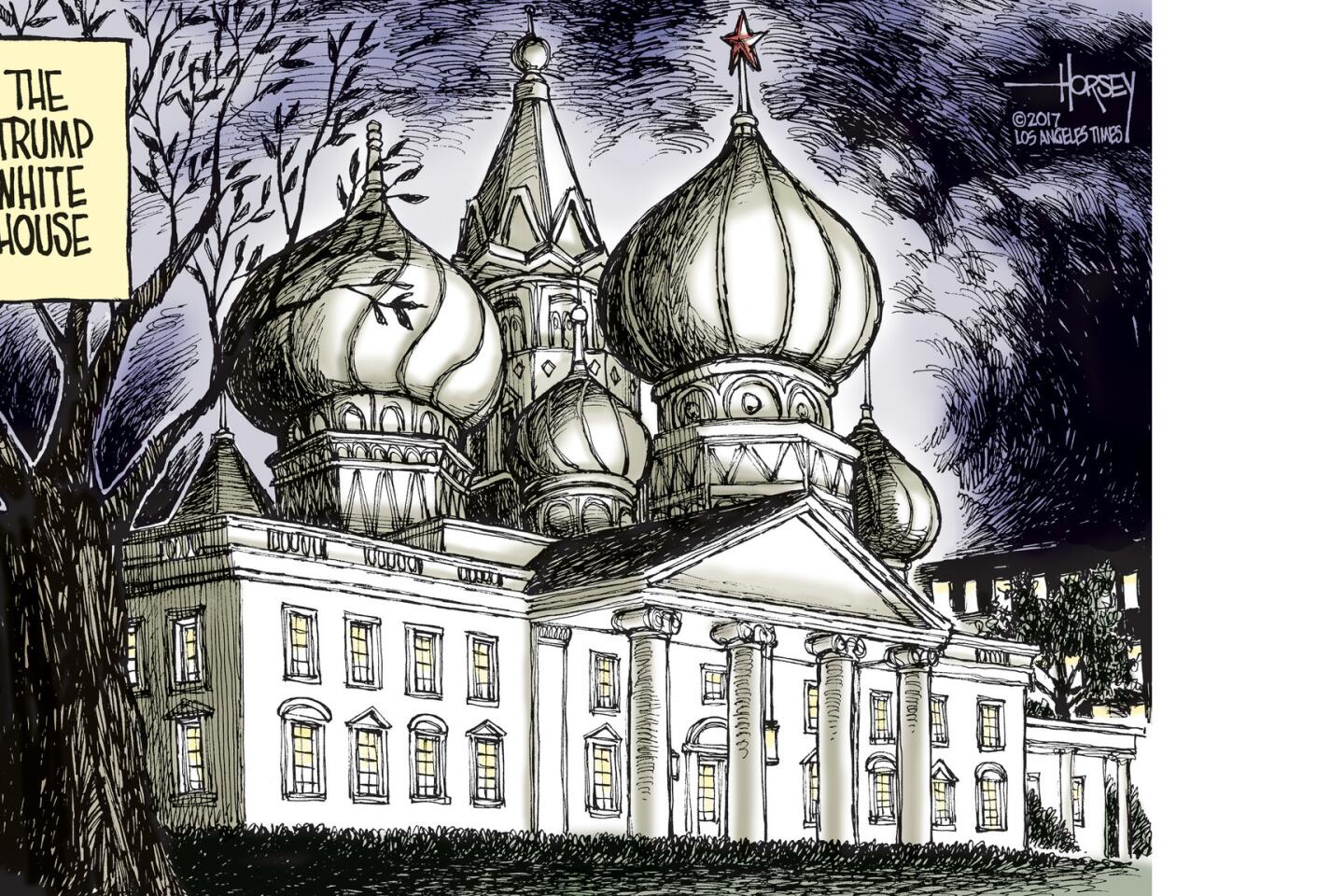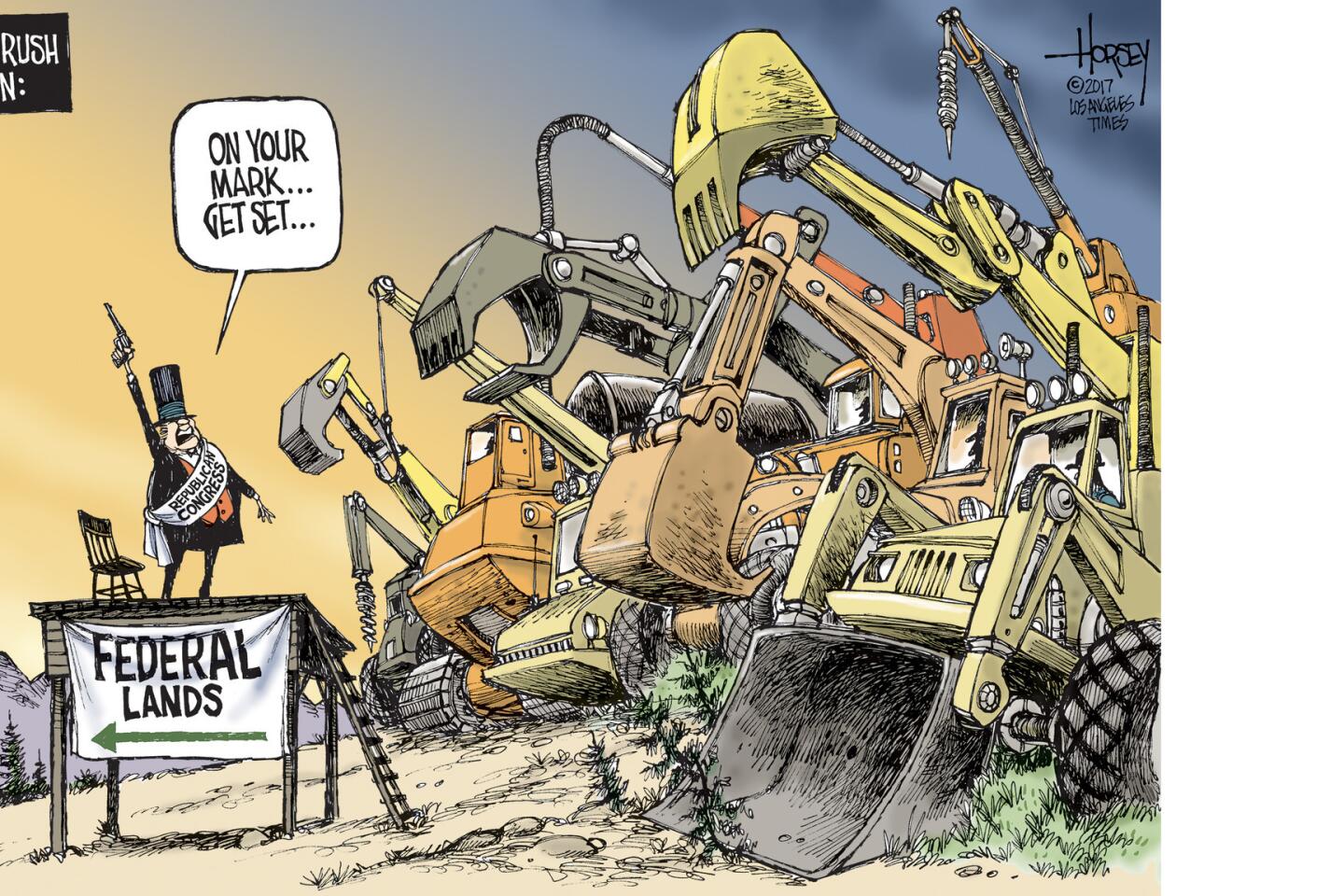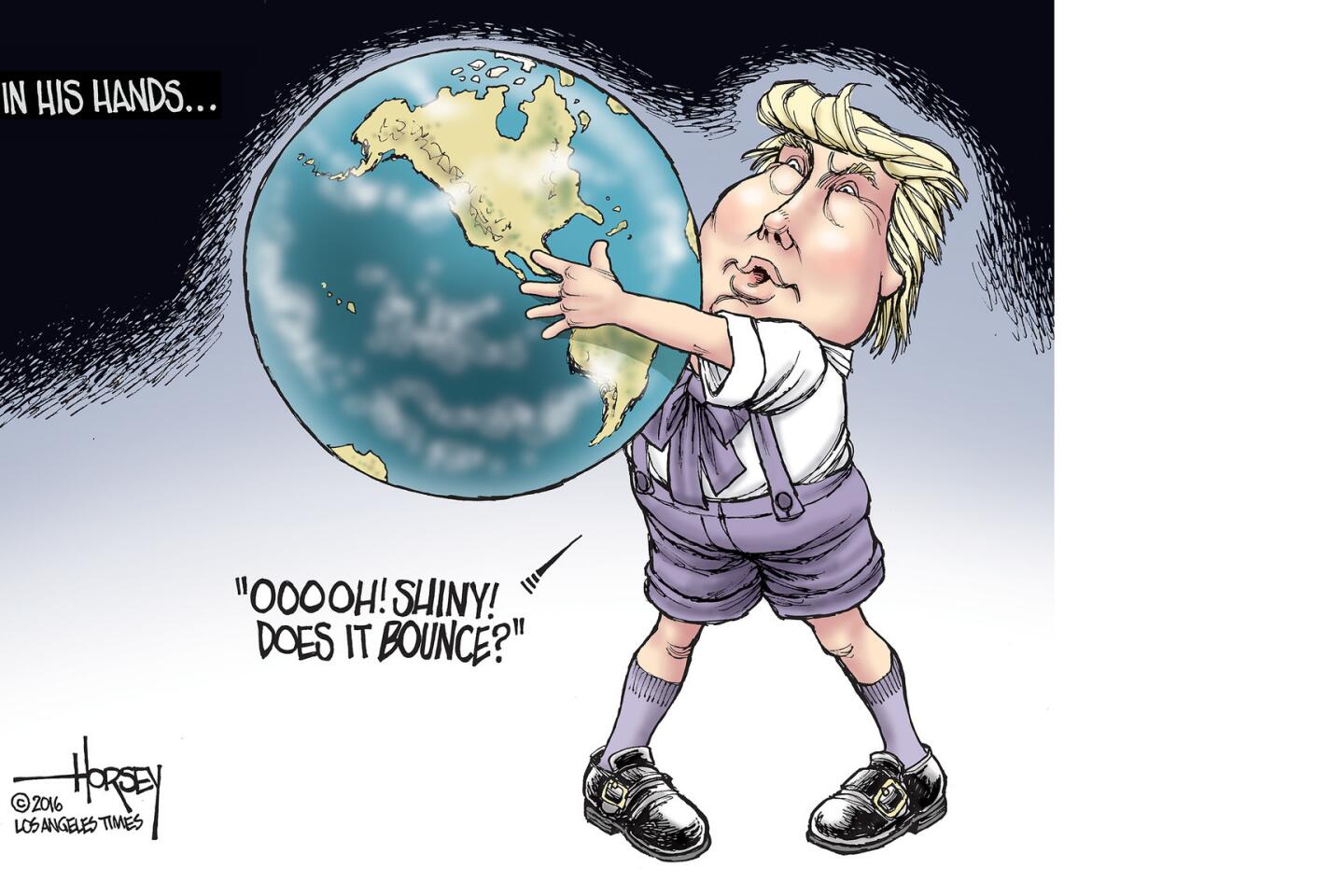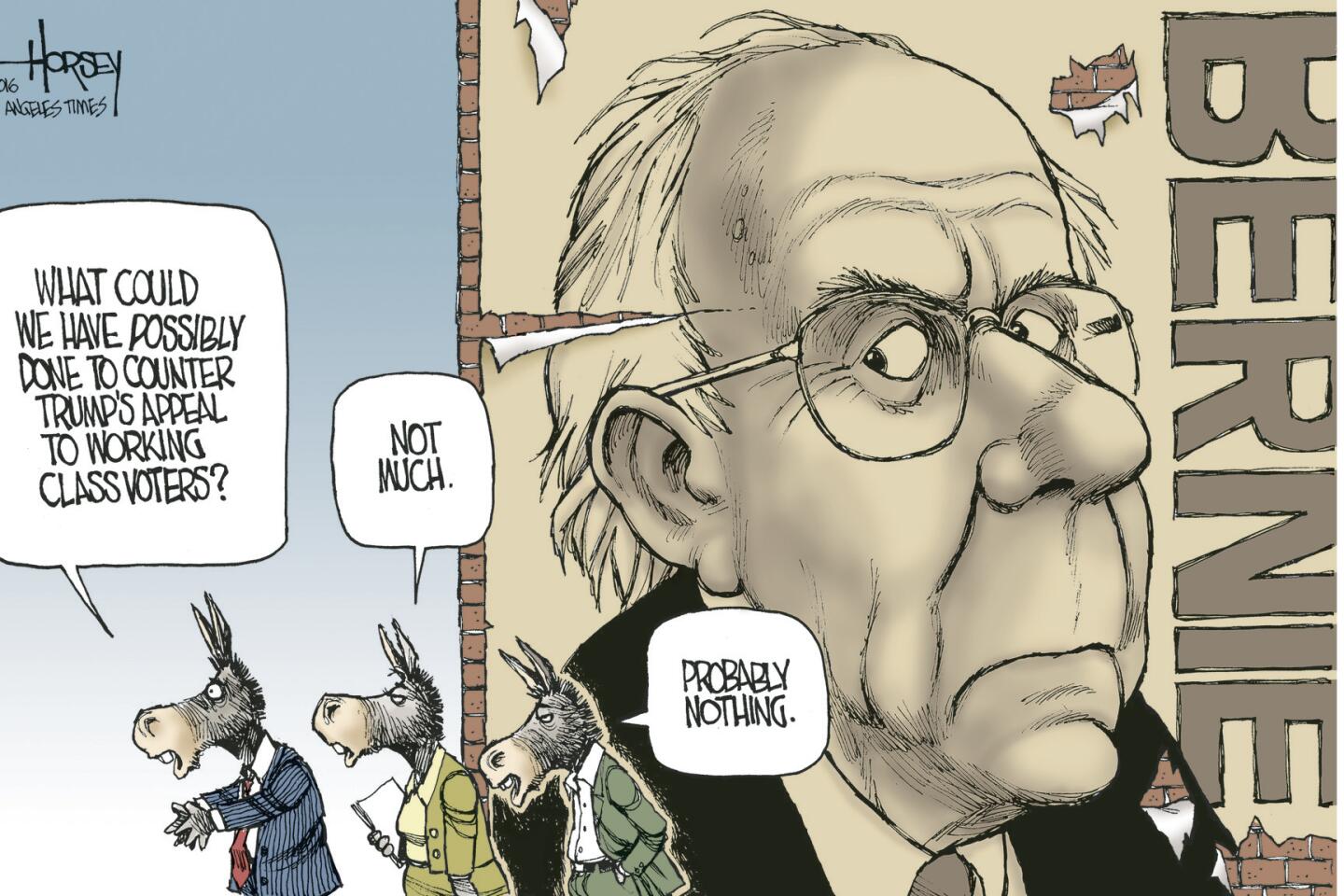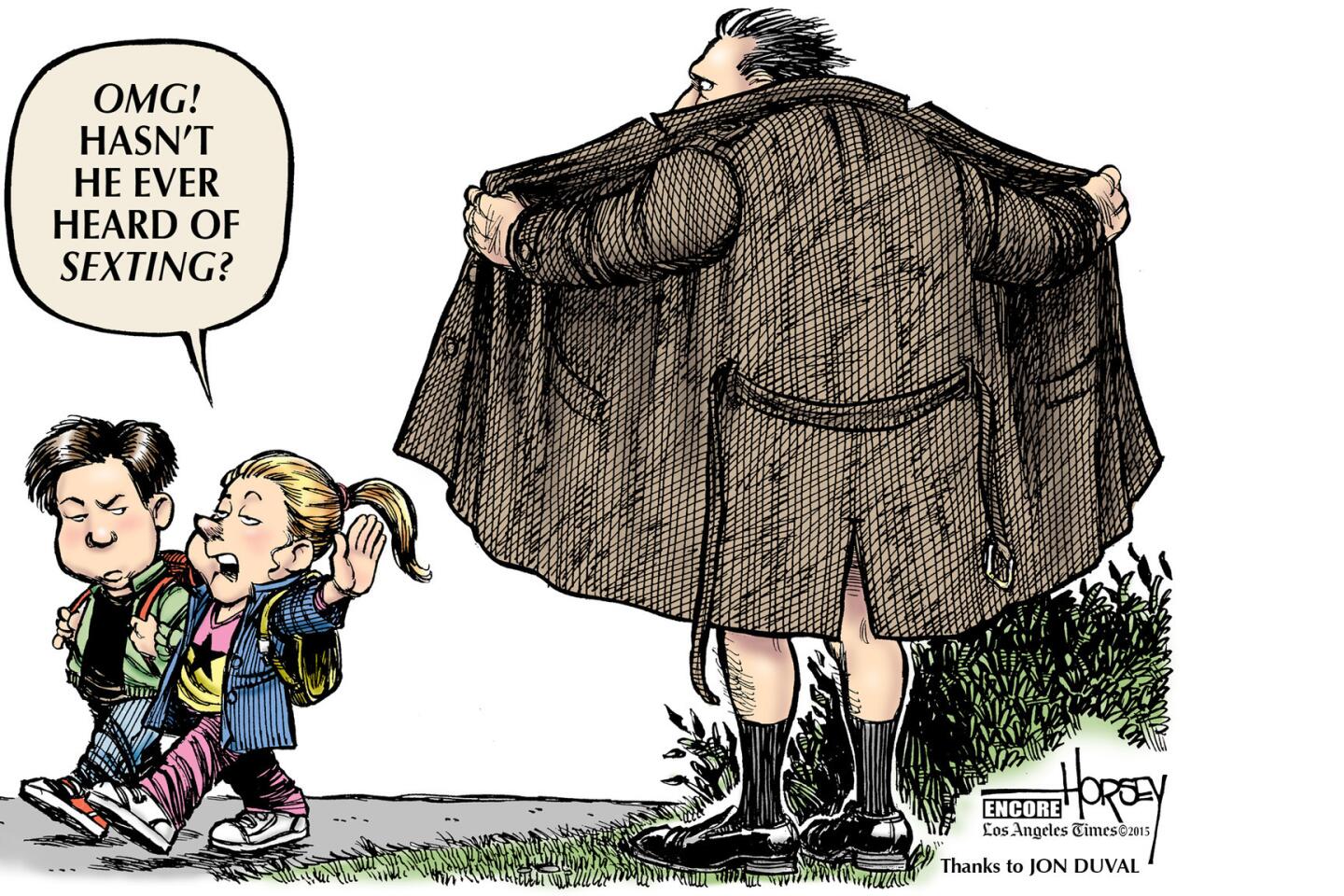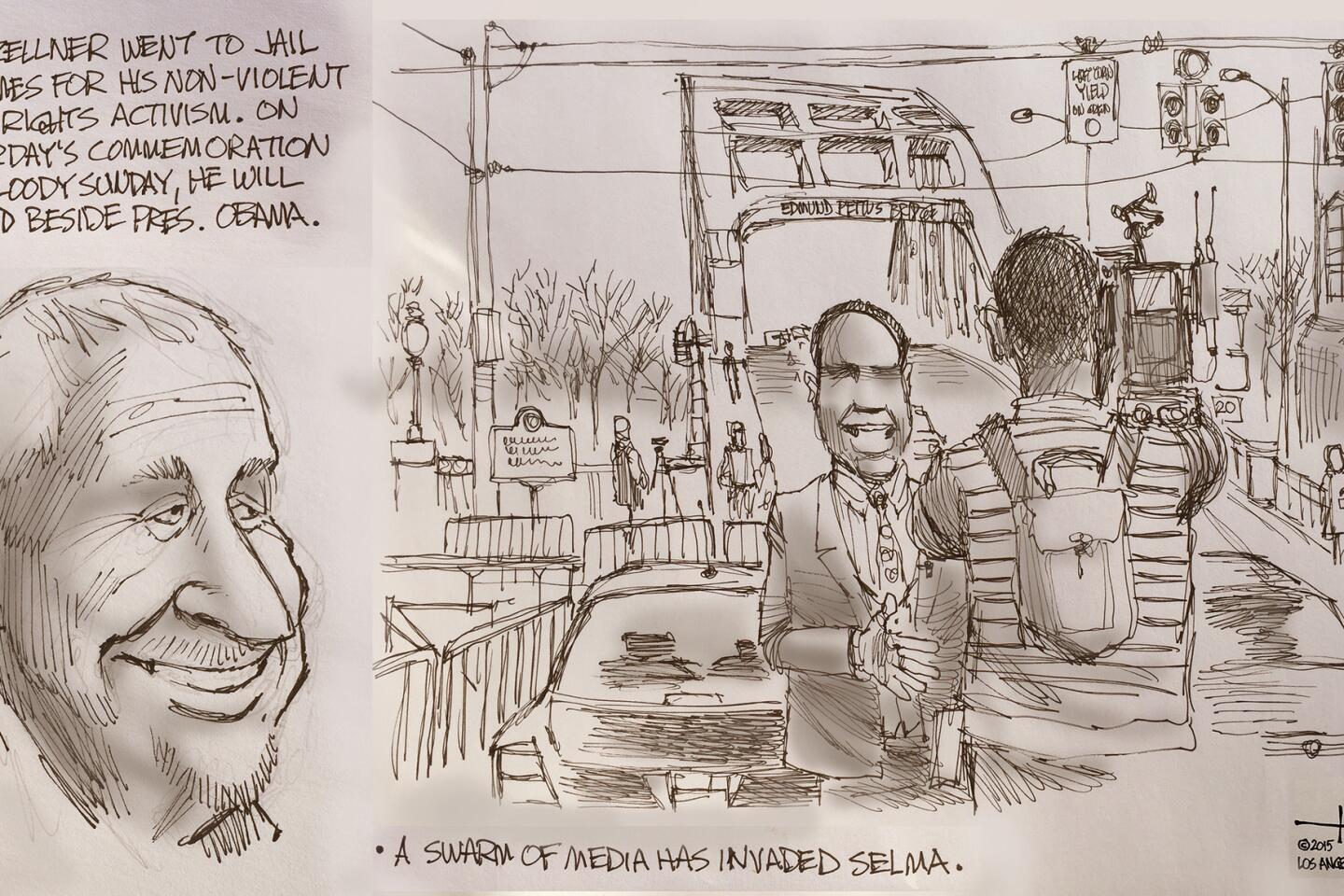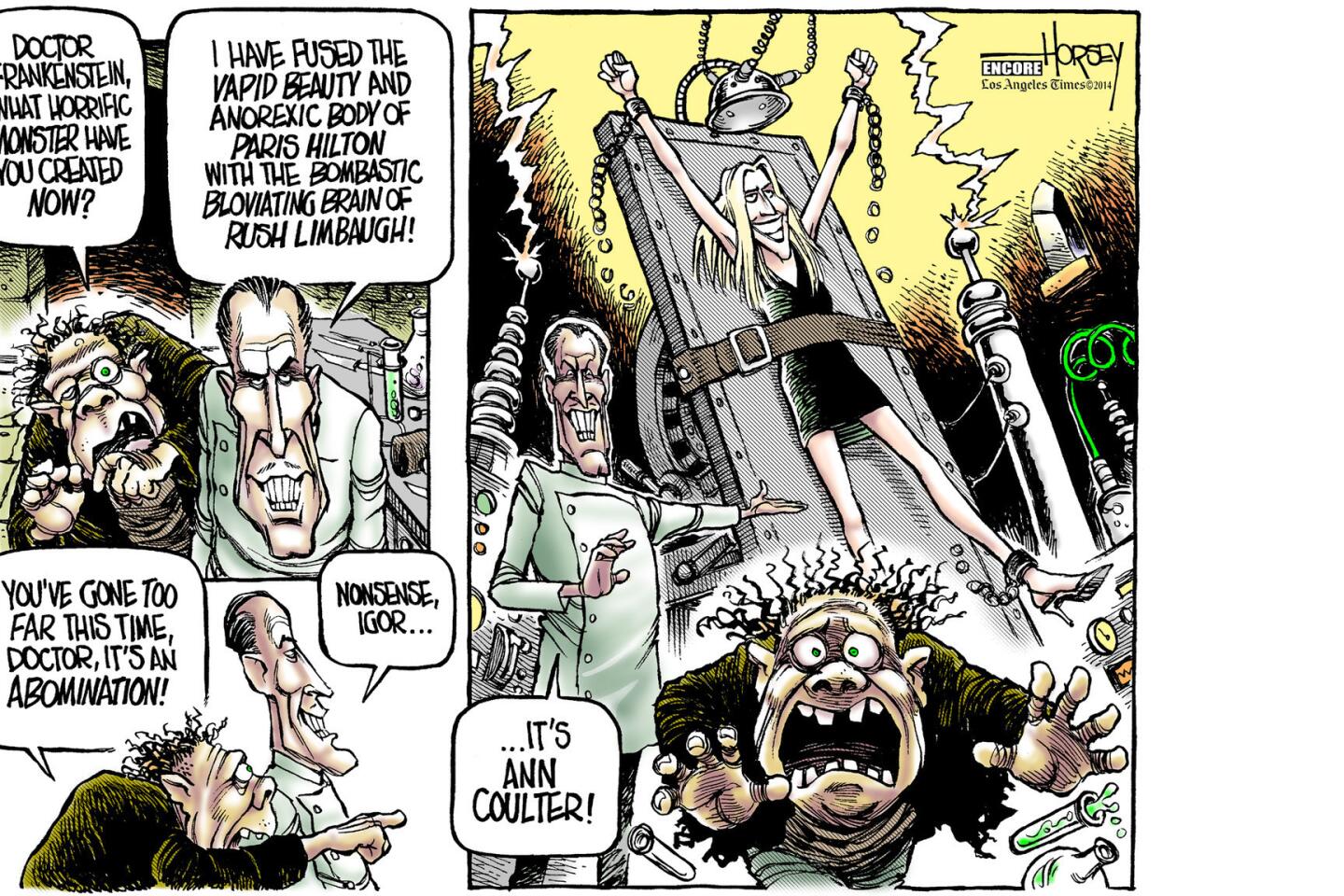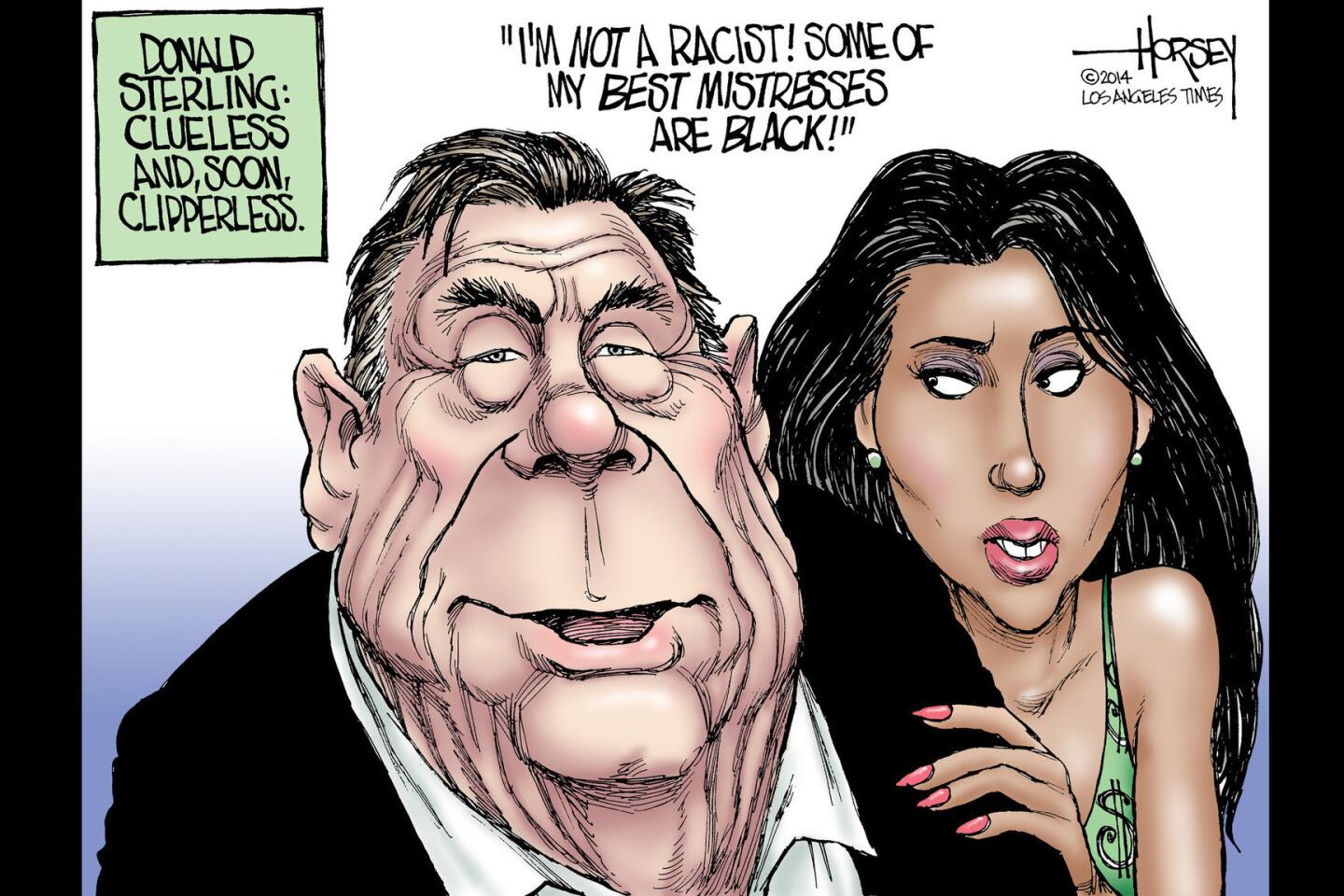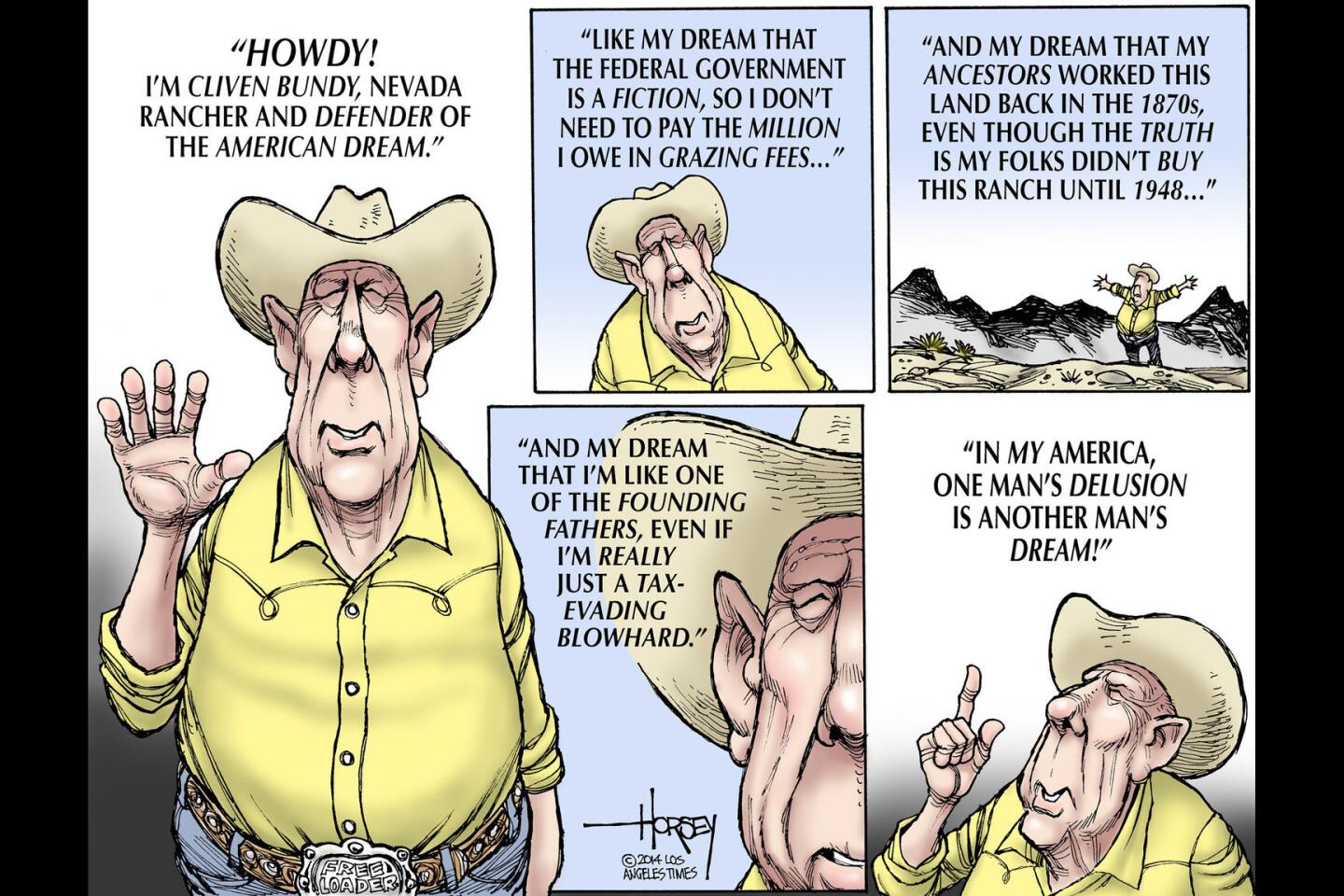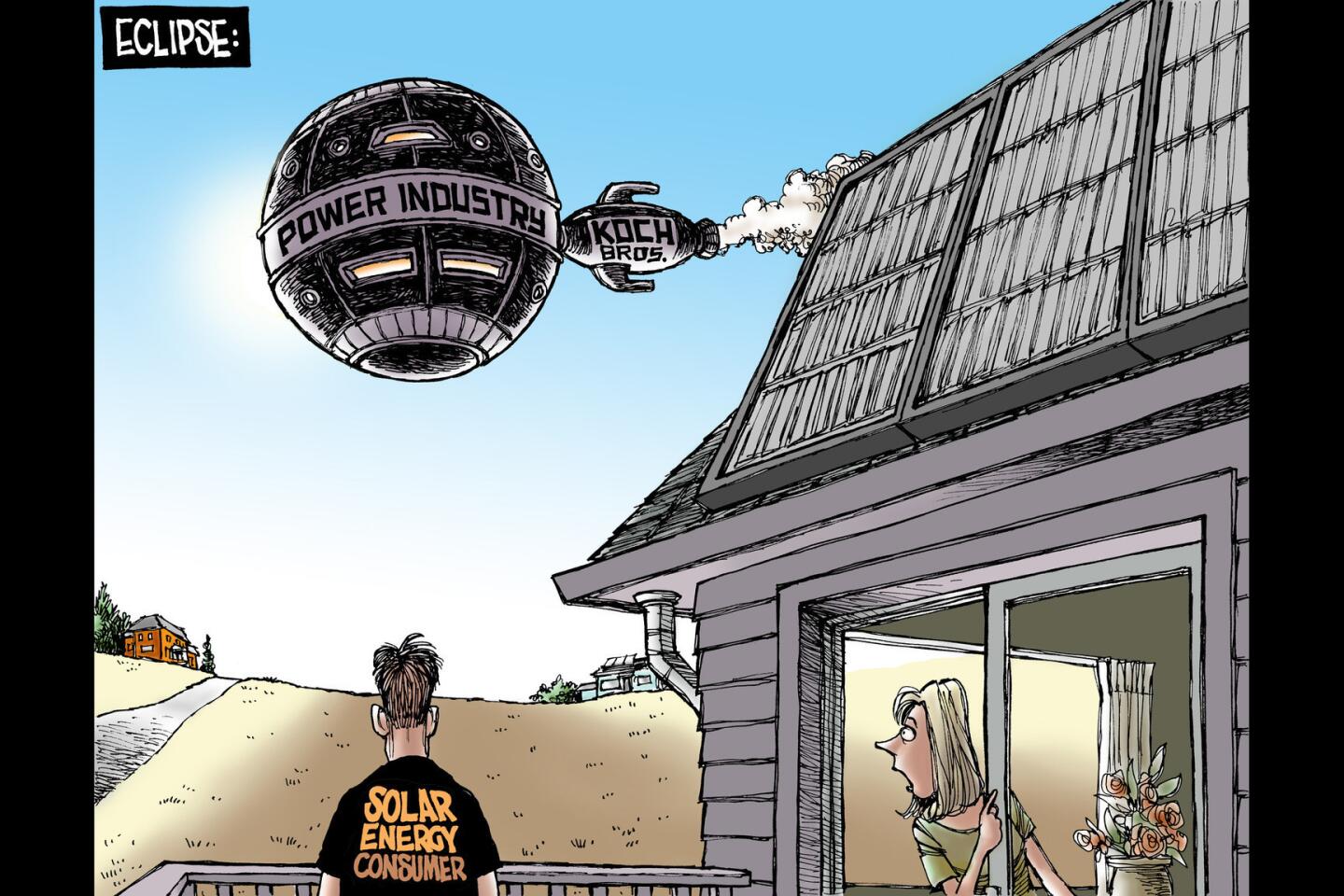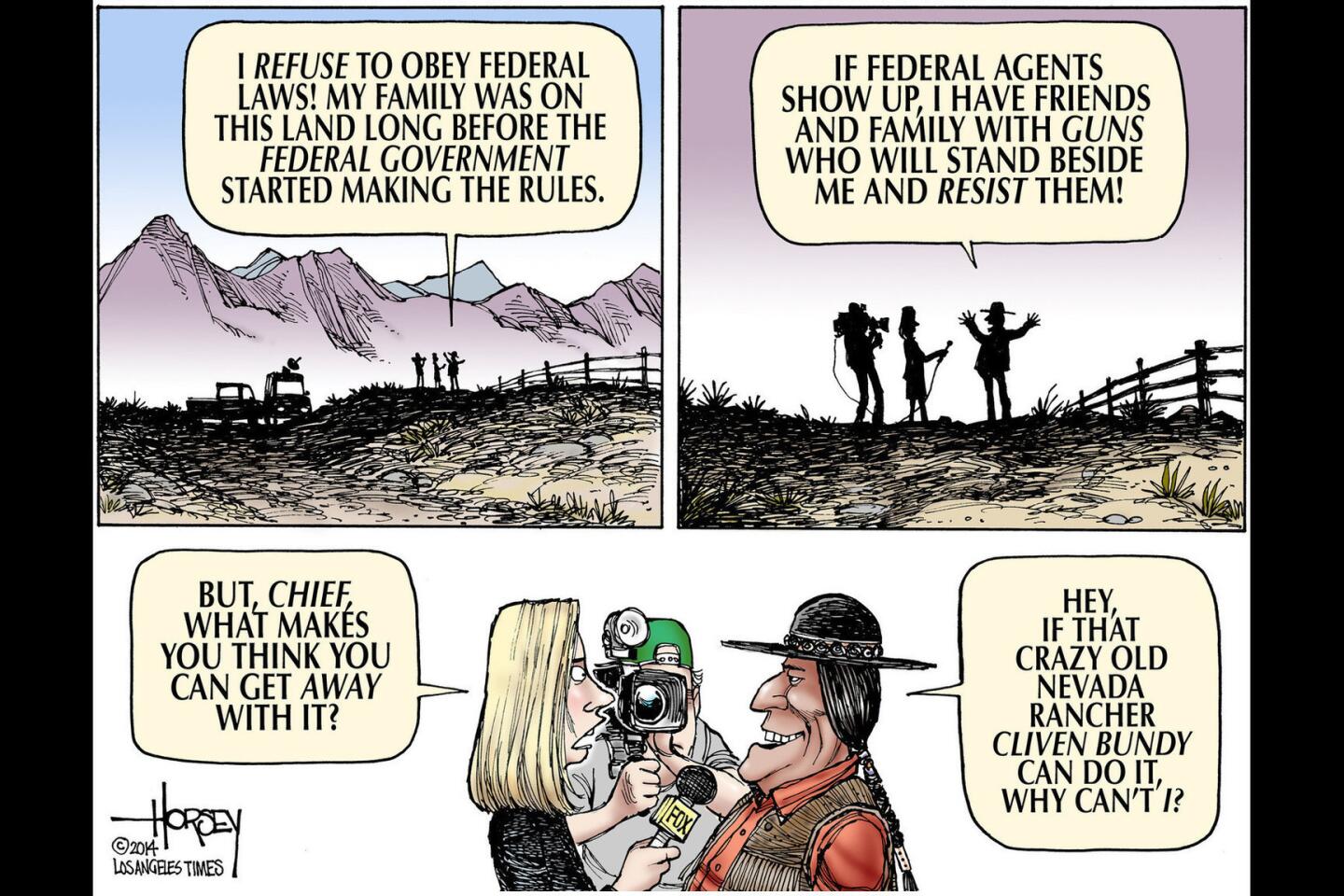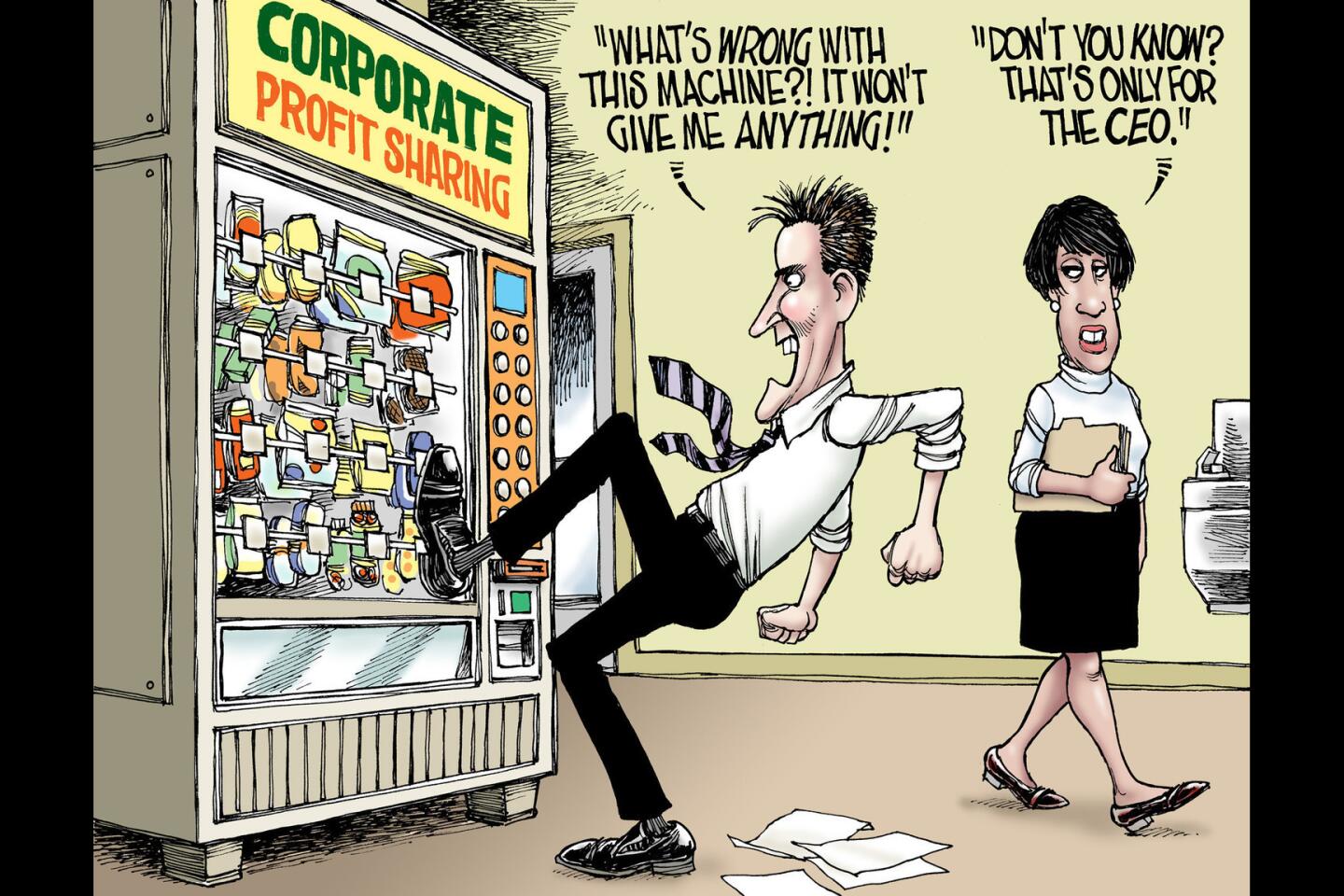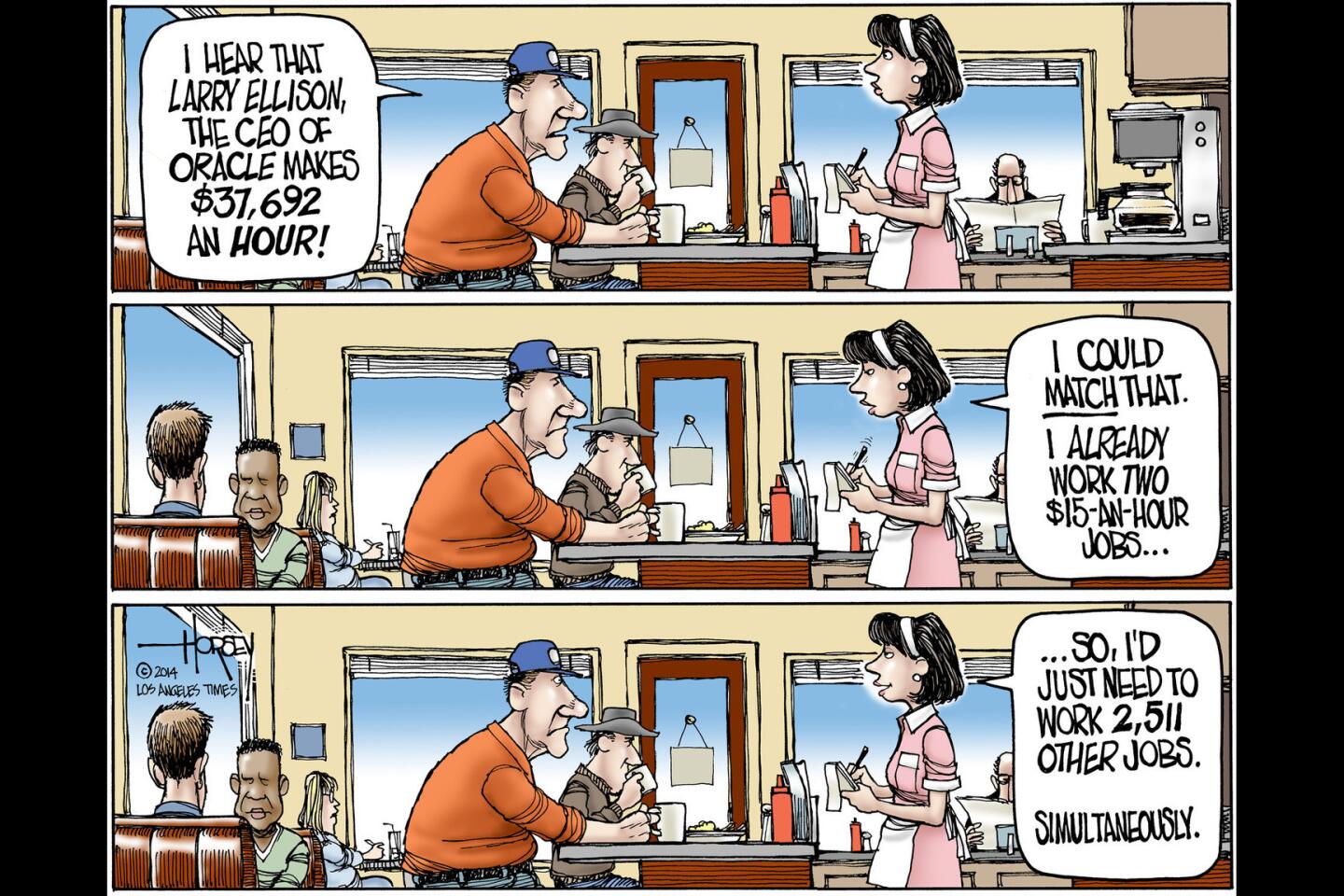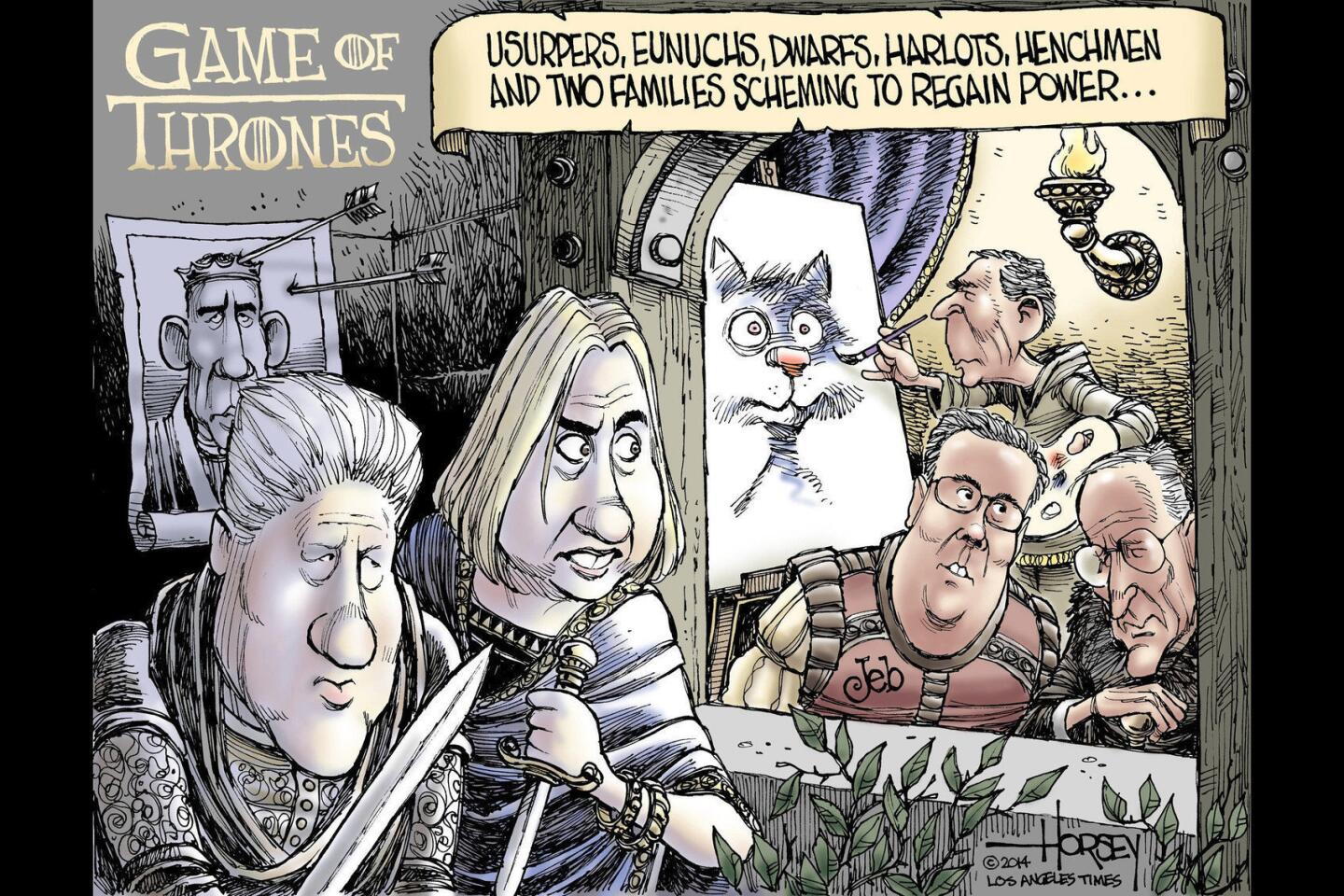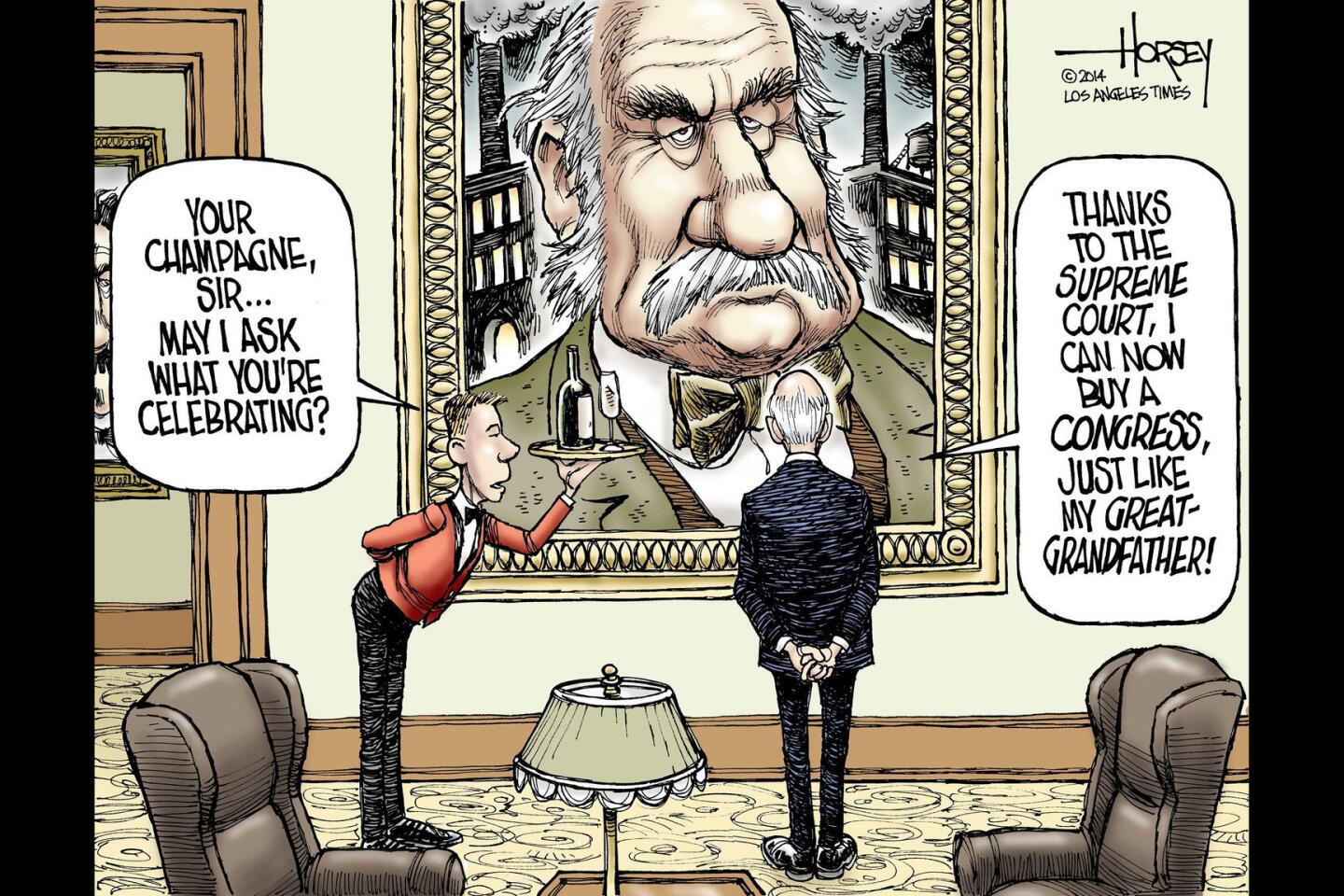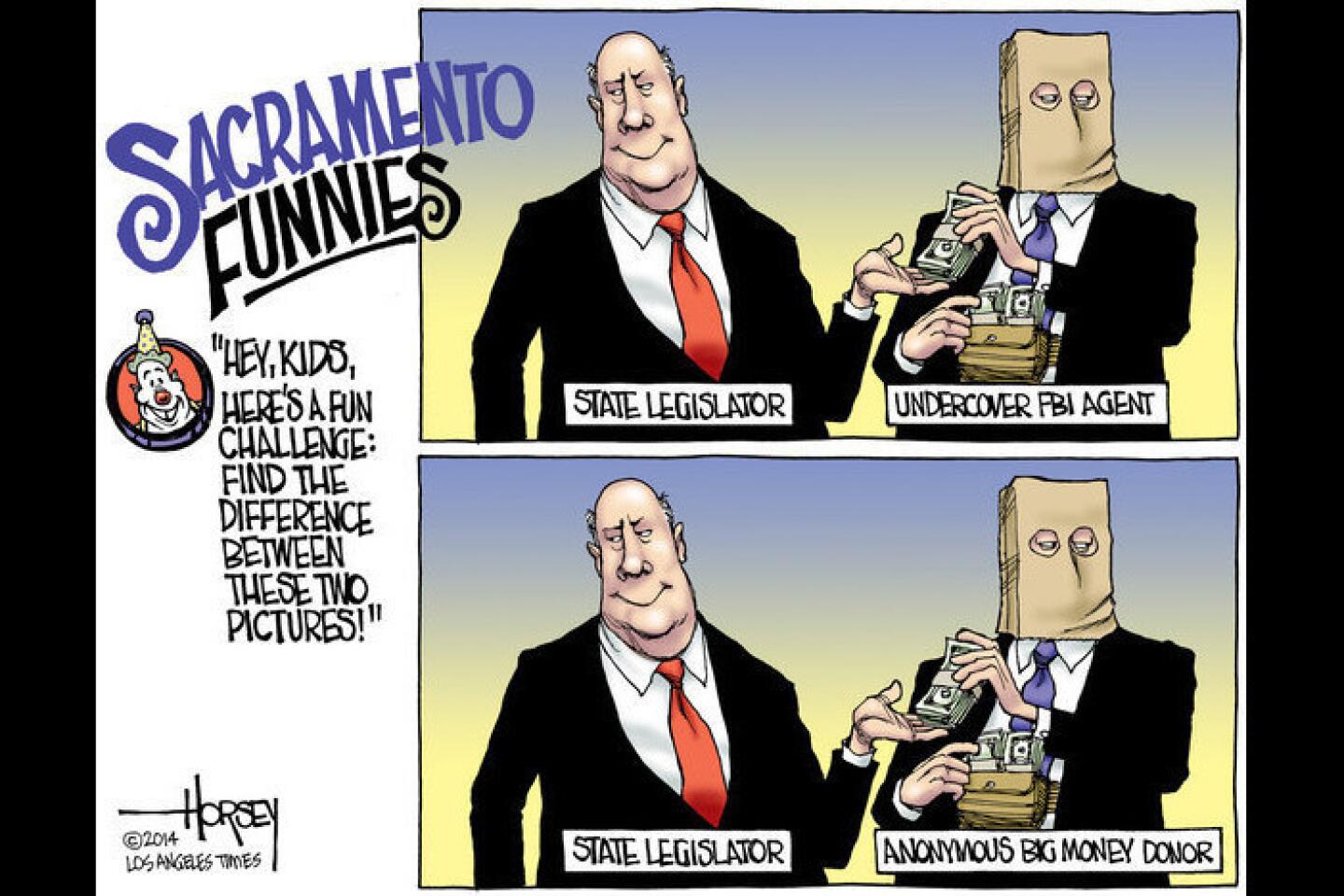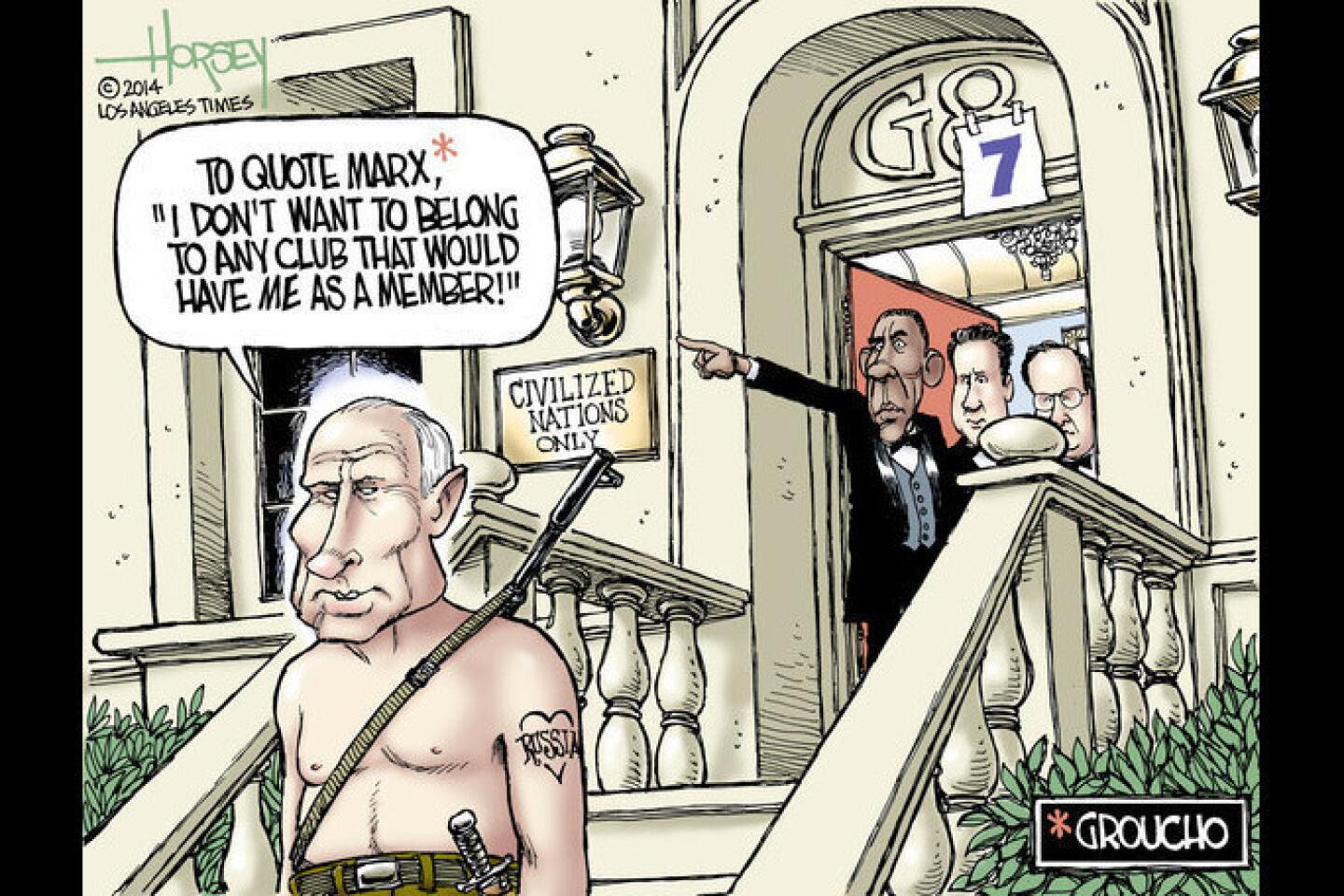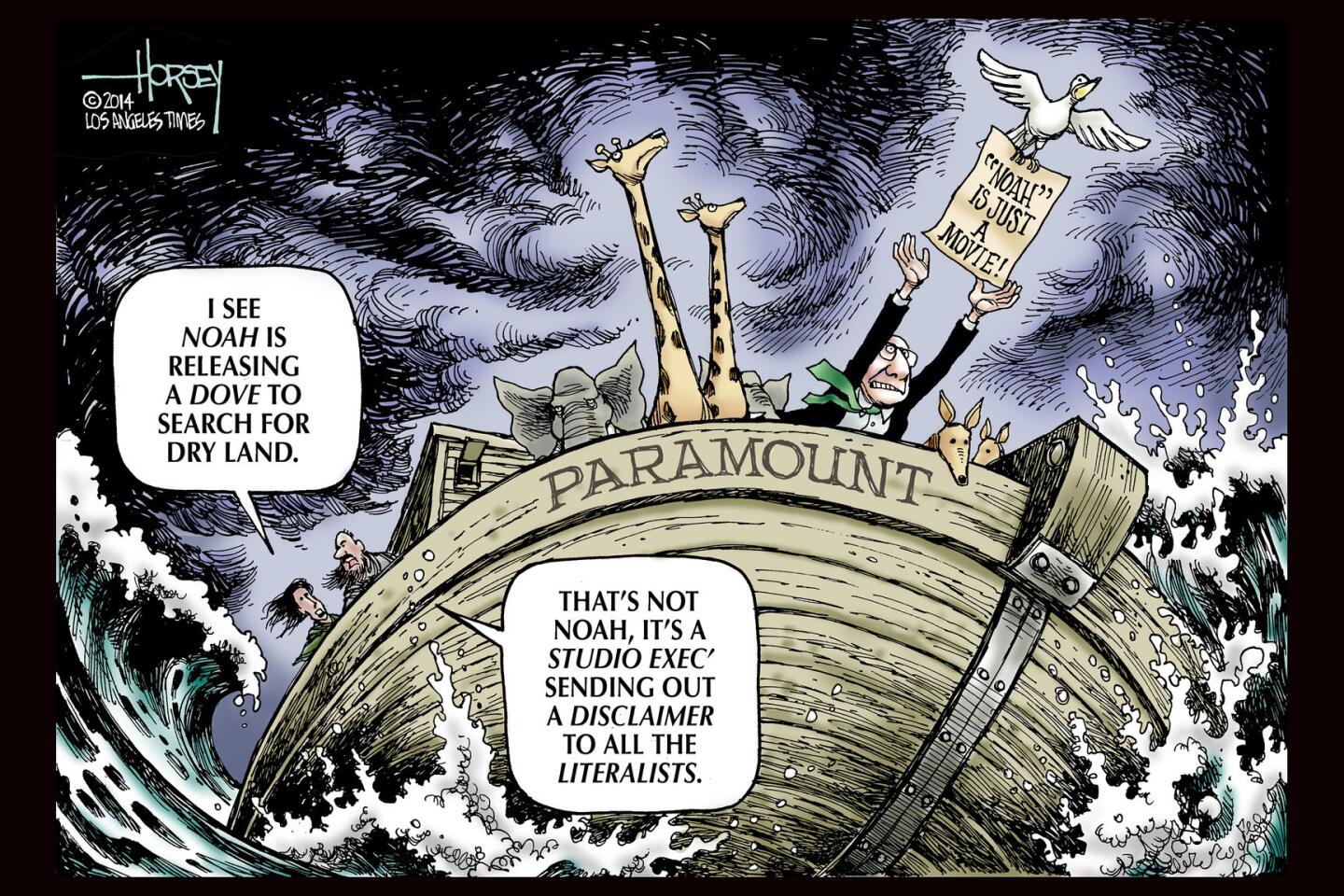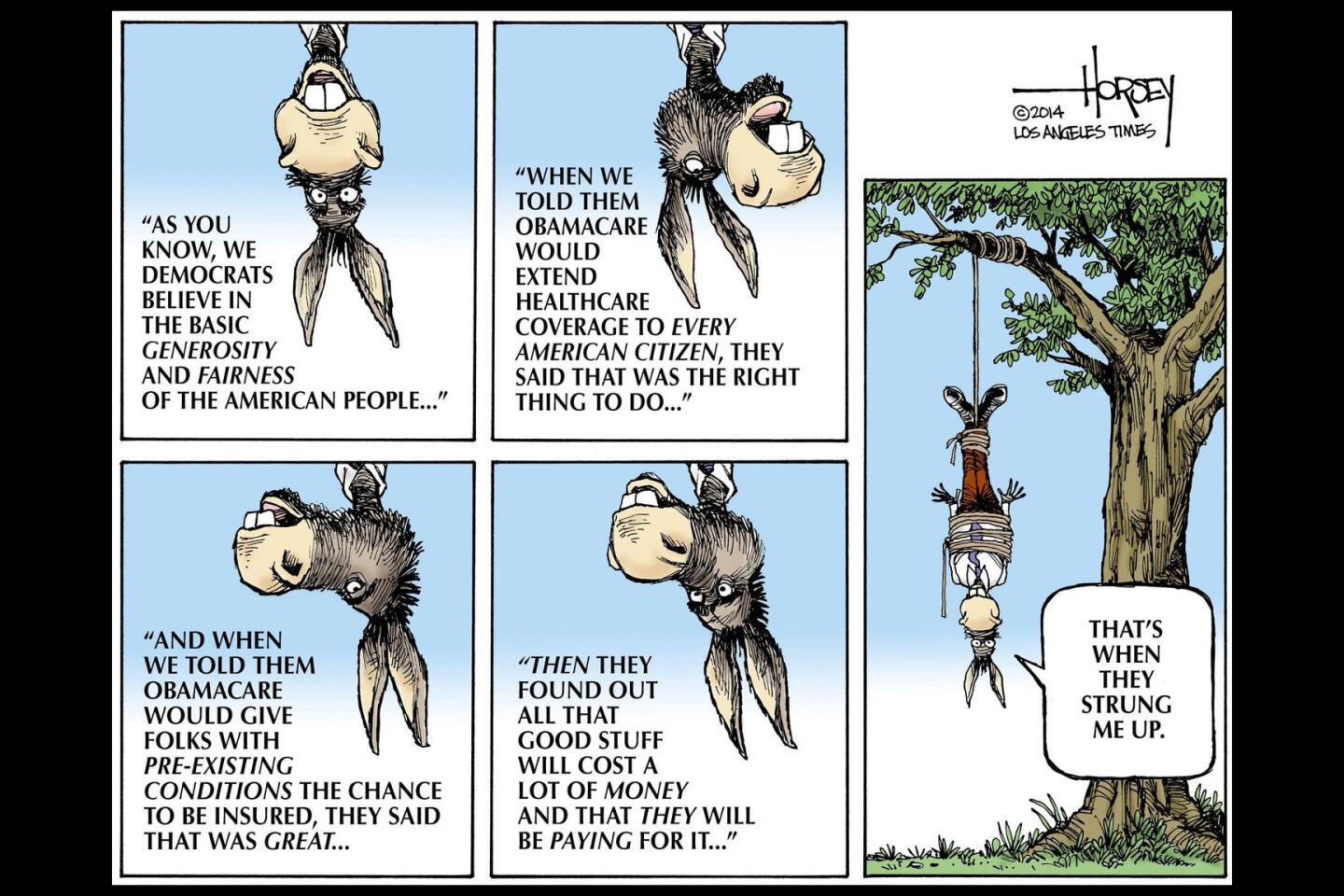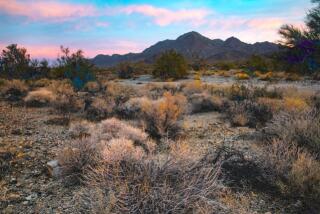Will the next president be an enemy of our national parks?
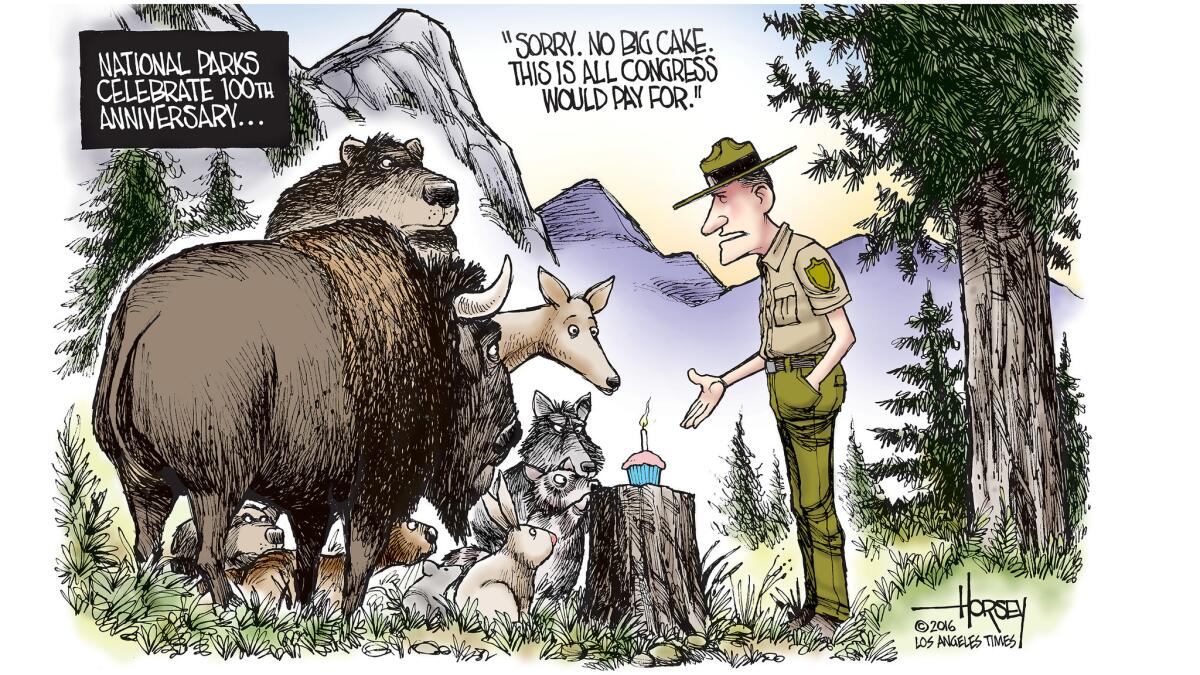
- Share via
President Obama is flying into the swirling power of Hurricane Madeline this week to attend the World Conservation Congress in Hawaii, a rather symbolic journey considering how he has faced a constant storm of Republican opposition — on environmental issues, in particular — since the day he took office in 2009.
Obama will also be visiting Midway Atoll, which lies inside the world’s largest marine reserve — a protected area encompassing the northwestern Hawaiian islands that the president recently created with a stroke of his pen. Under the Antiquities Act of 1906, any president has unilateral power to create new national monuments to set aside federal land and sea regions to protect them from development and commercial exploitation. President Theodore Roosevelt famously used this authority to create 18 national monuments. Obama has now exceeded that record by designating as national monuments 23 areas of natural beauty and value.
These preserved areas are the glory of this country. Our national parks, in particular, have been called “America’s best idea.” But, though the National Park Service this year is celebrating its centennial, not everyone thinks the parks and monuments and preserves are so wonderful. From the time of Roosevelt, there have always been politicians in thrall to mining companies and other corporate interests that oppose the idea of holding federal land in trust for all the people of the United States and keeping it out of the hands of private owners.
Roosevelt enraged politicians in the Western states by setting aside 150 million acres of land as national forests. Congress tried to block him from doing more, but he found ways to work around the reactionaries in the House and Senate. Thanks to Roosevelt’s political skill and passion for conservation, millions more forest acres were protected, as well as places like Chaco Canyon, Devil’s Tower and, grandest of all, the Grand Canyon.
Roosevelt, and many wise leaders who followed him, bestowed on all generations of Americans an invaluable heritage in public lands. Scandalously, though, many politicians have not proved to be good stewards of that heritage. The national parks in recent years have been kept on a starvation budget. Between 2005 and 2014, funding dropped 8%. The parks currently struggle with a $12-billion backlog in repairs and maintenance. Just one park alone — Joshua Tree National Park in the California desert — needs $60 million in restoration but has a yearly budget of just $6 million.
A national parks funding bill currently before Congress would help address the repair needs of the parks, but the legislation has been laden with unfriendly amendments that would subvert the Clean Water Act, the Clean Air Act and the Antiquities Act. Clearly, some members of Congress are more interested in protecting business interests than protecting America’s most cherished places.
Luckily, we currently have a president who is committed to upholding and advancing the legacy of Roosevelt. But who comes next? Will voters choose as our next president a person who will also be a champion of the national parks, the national forests, the national monuments and the nature preserves in the manner of Roosevelt and Obama? Or will they pick someone who will side with the exploiters who are eager to roll back a century of progress in protecting America’s natural heritage?
Follow me at @davidhorsey on Twitter
More to Read
A cure for the common opinion
Get thought-provoking perspectives with our weekly newsletter.
You may occasionally receive promotional content from the Los Angeles Times.
